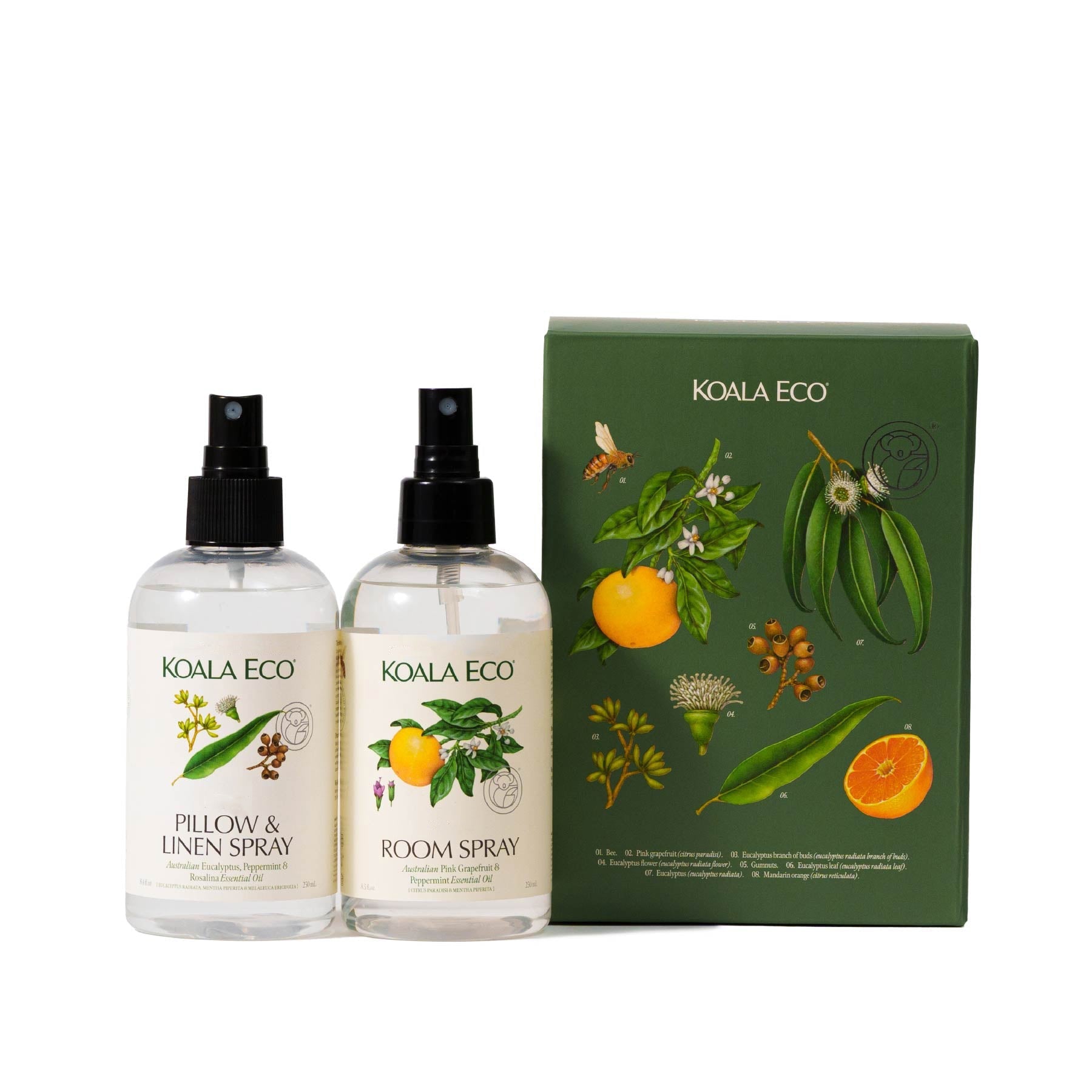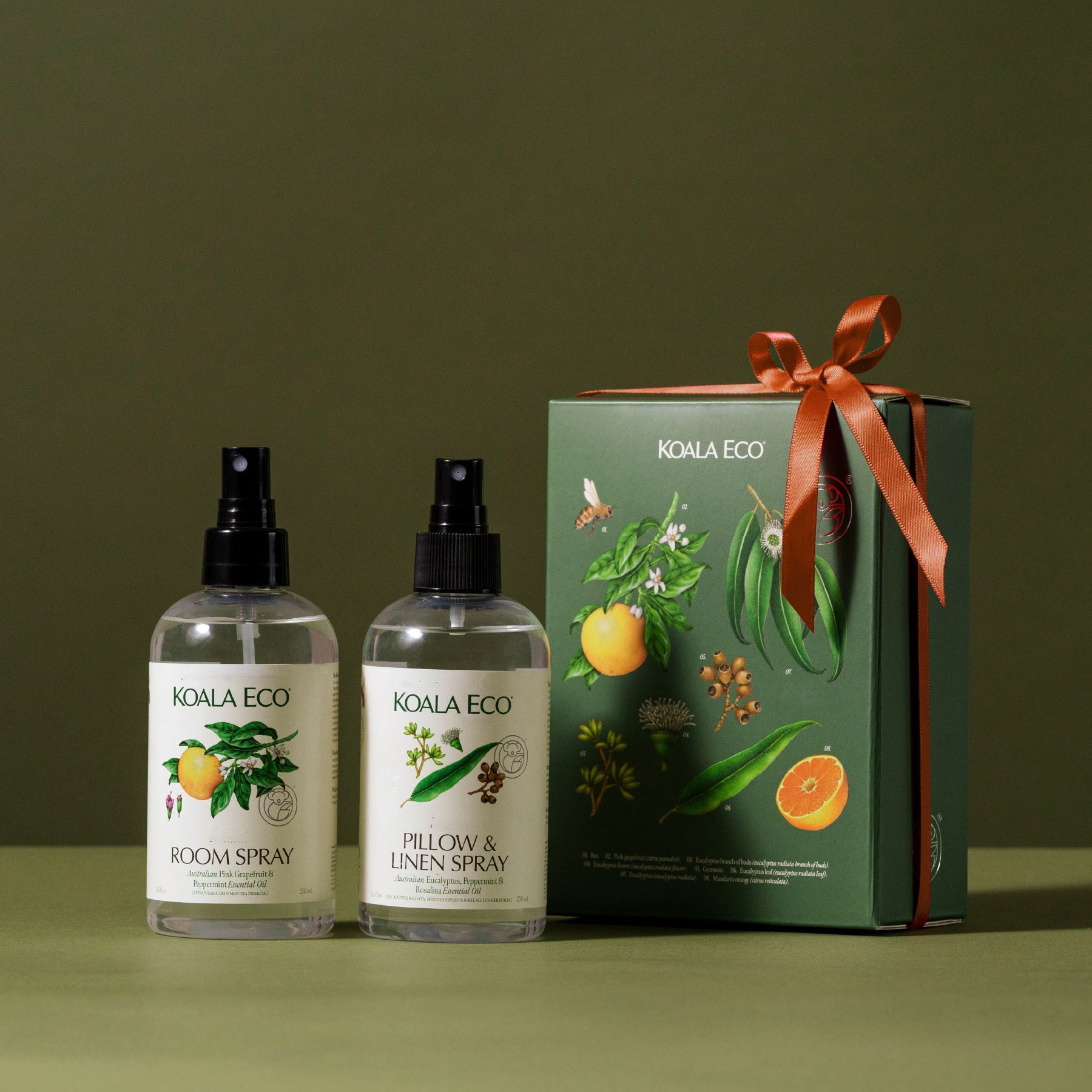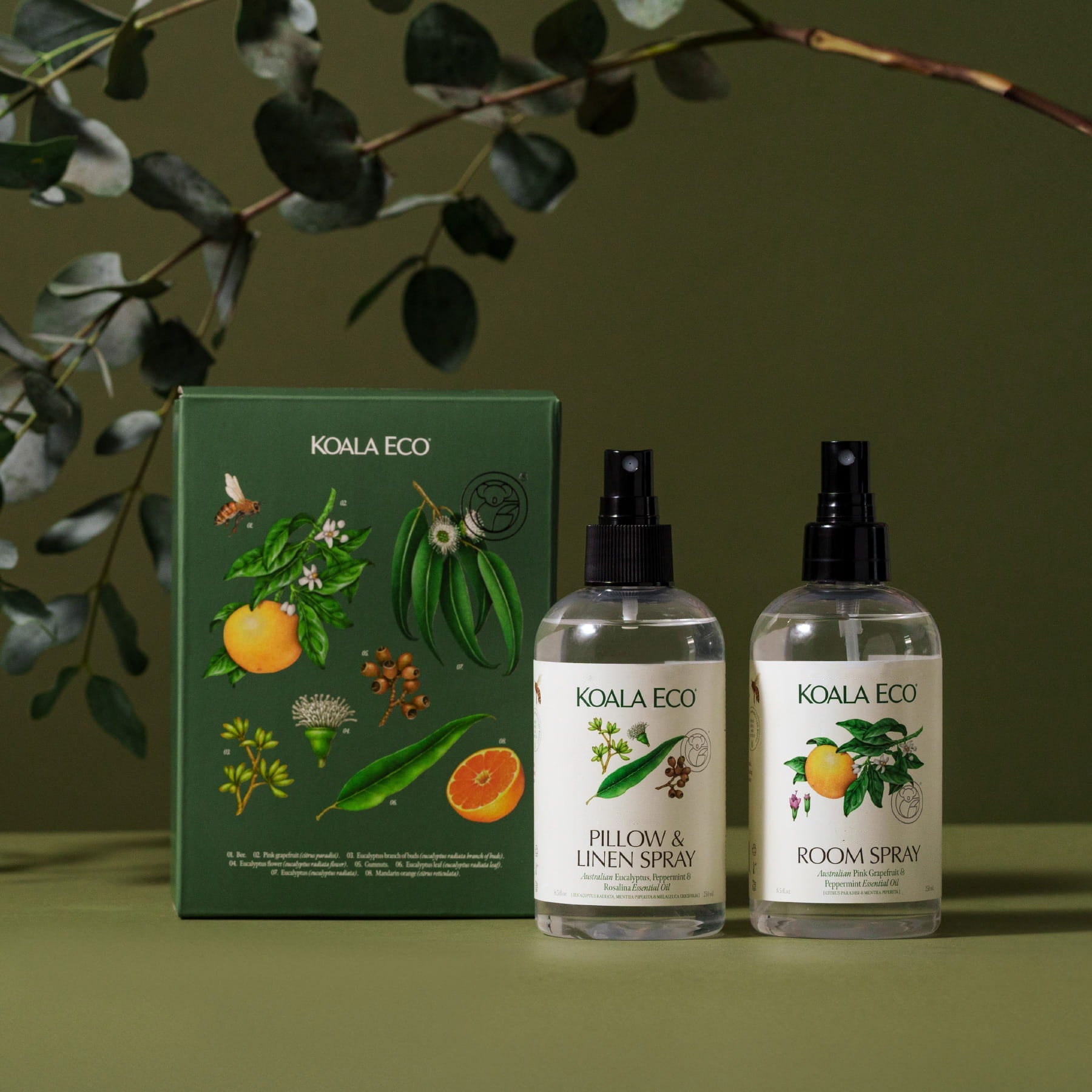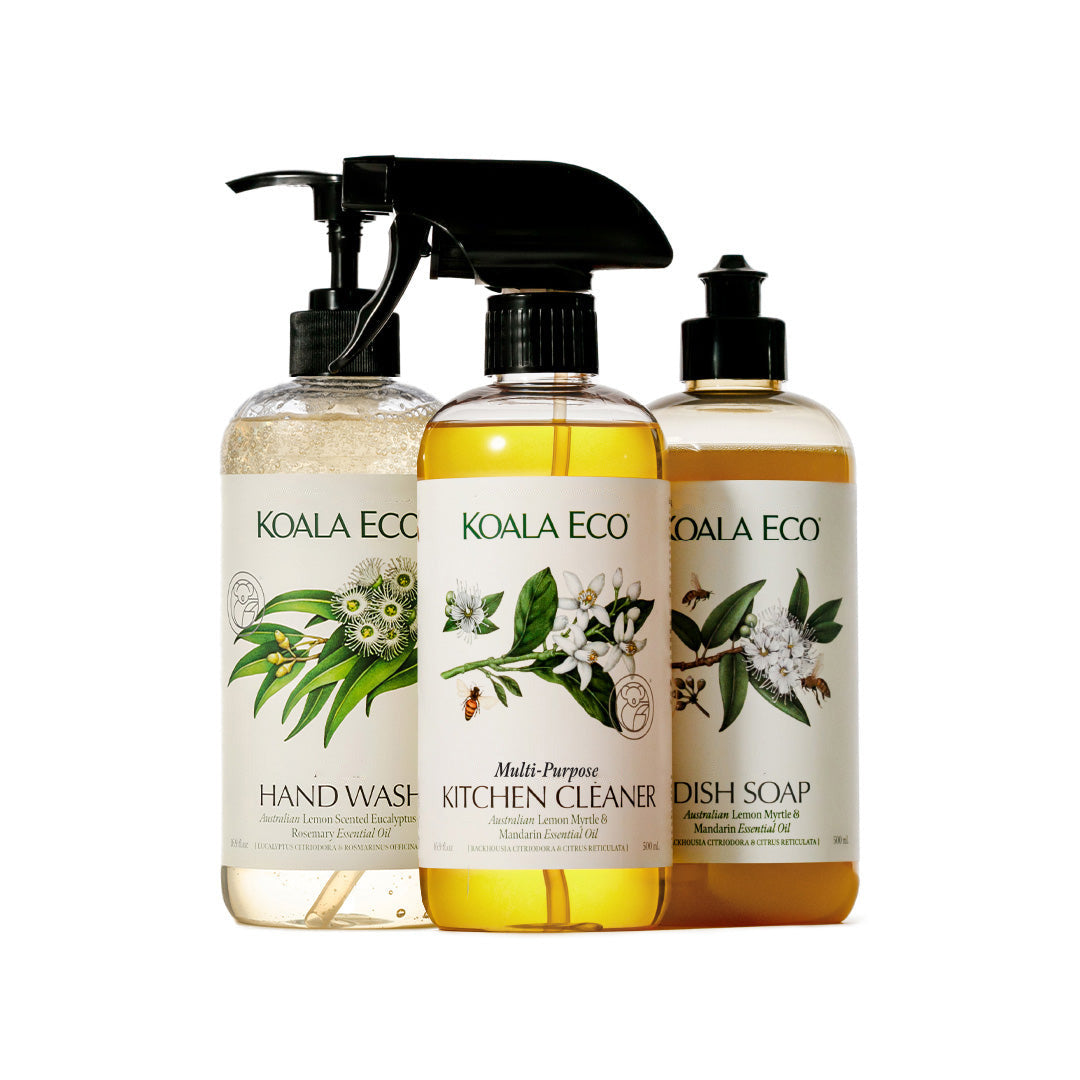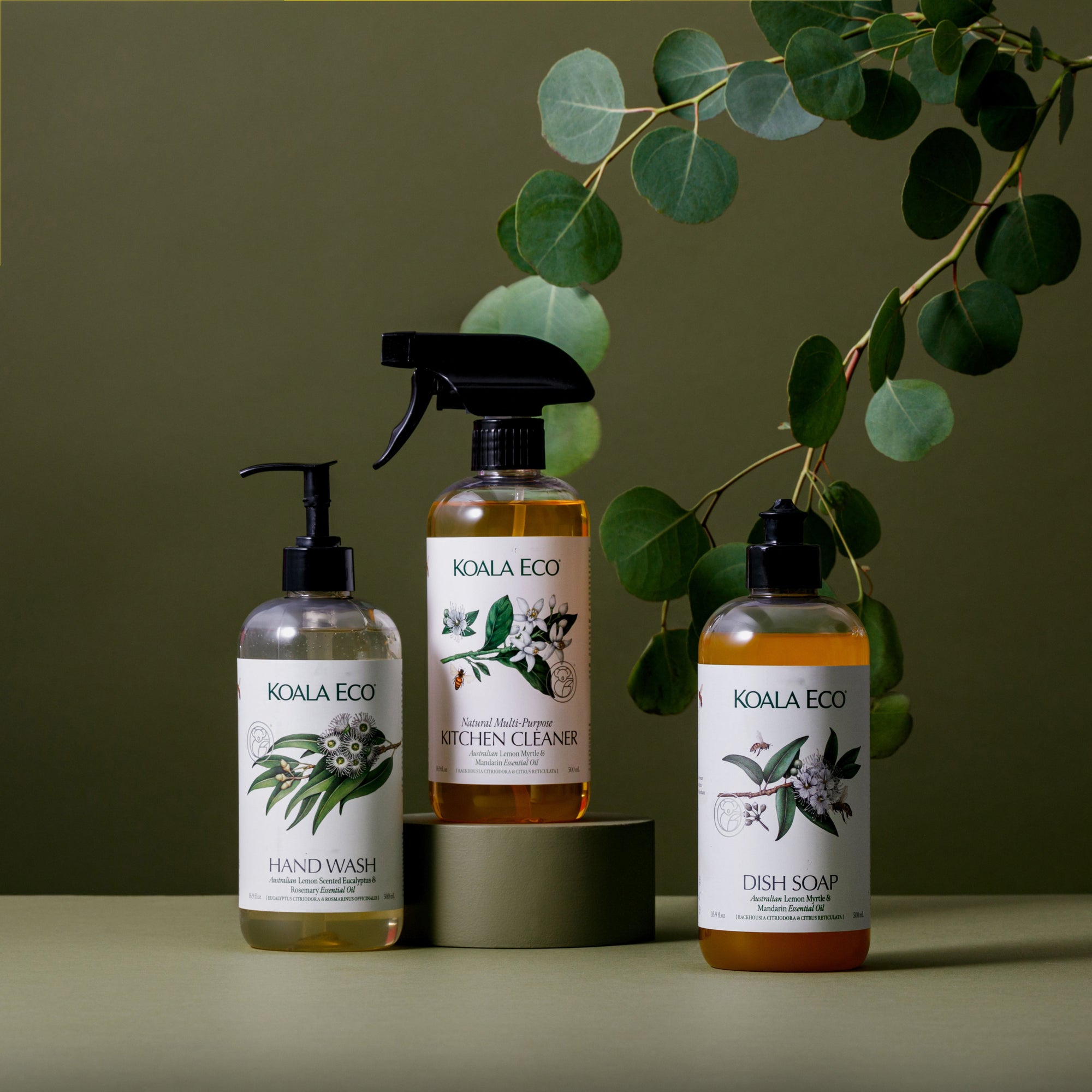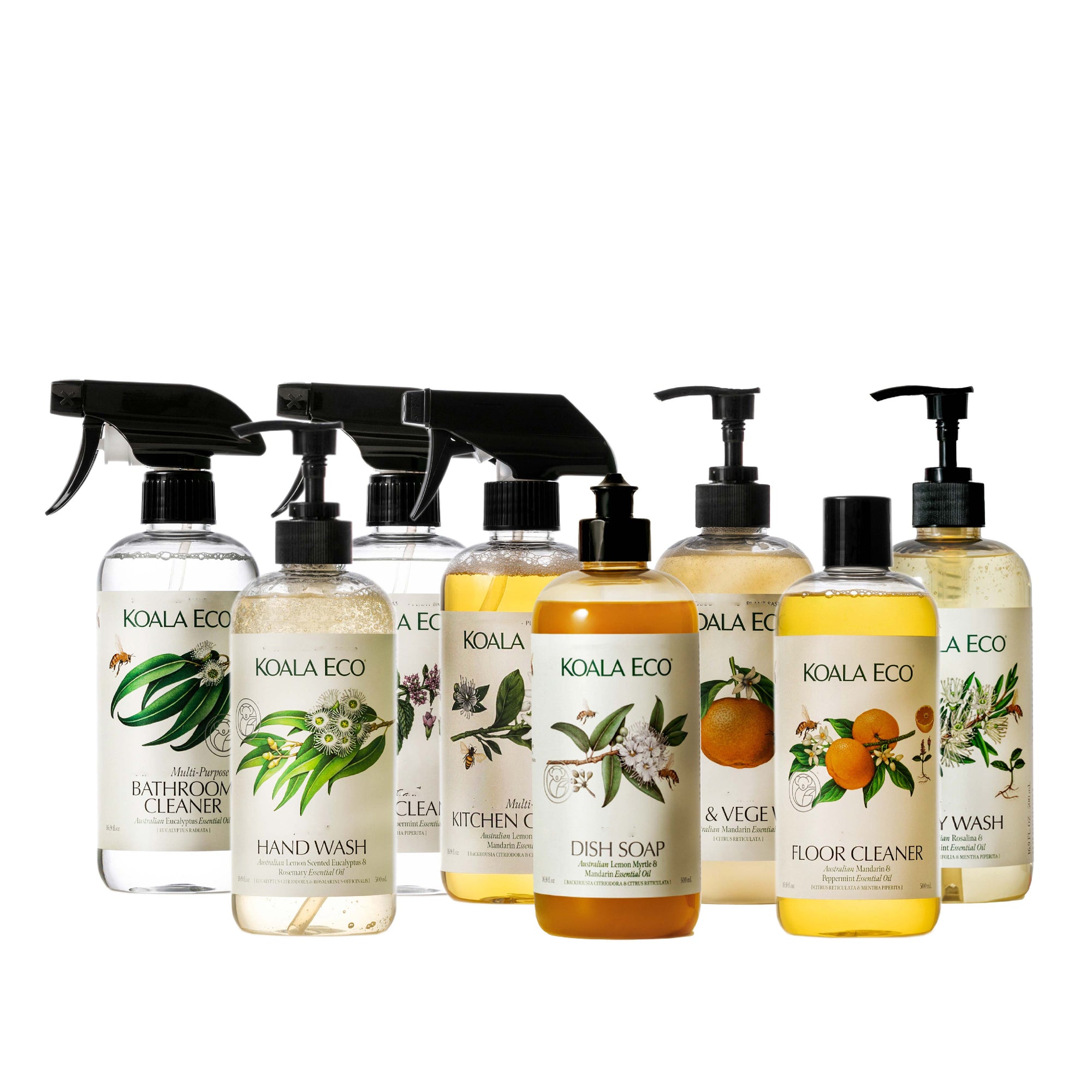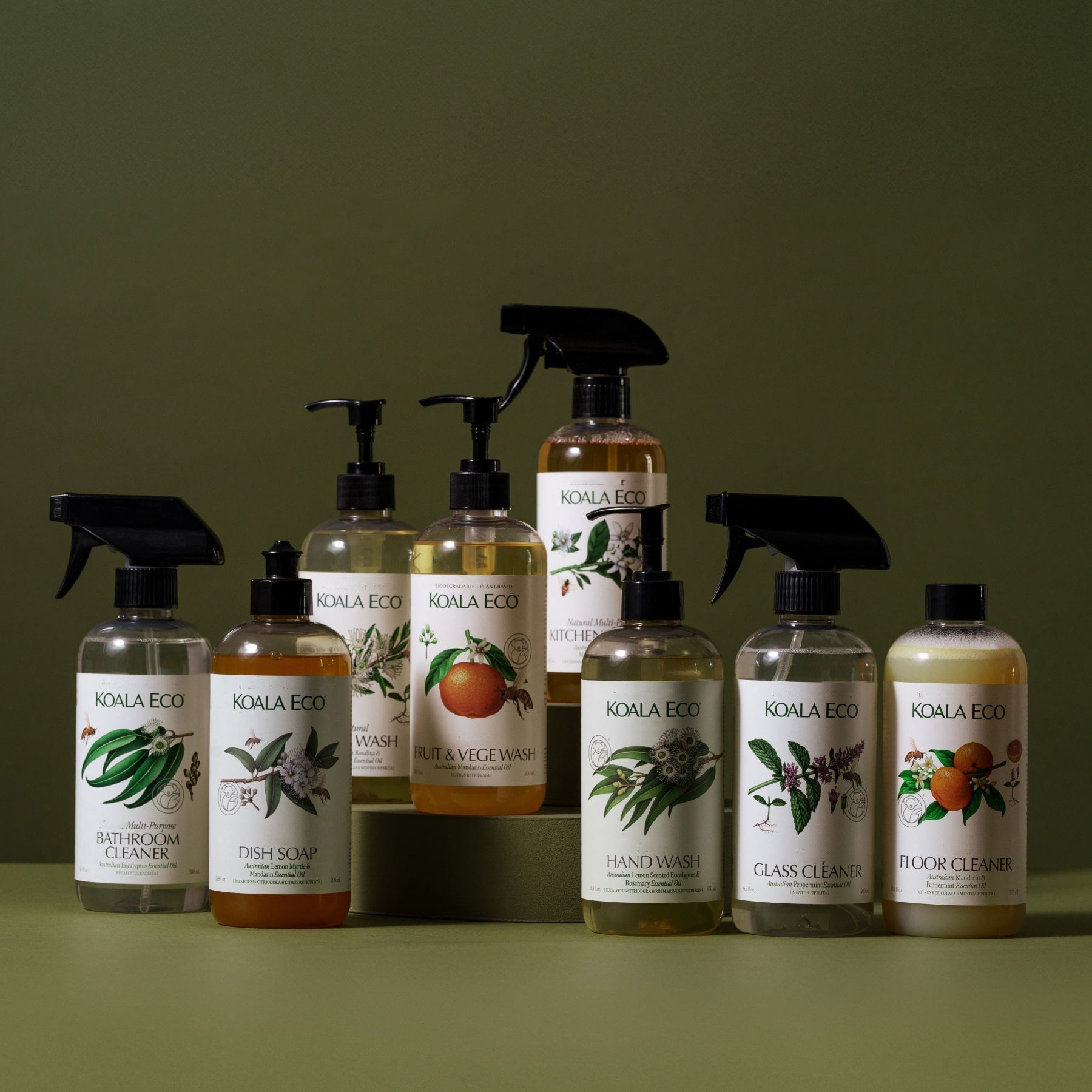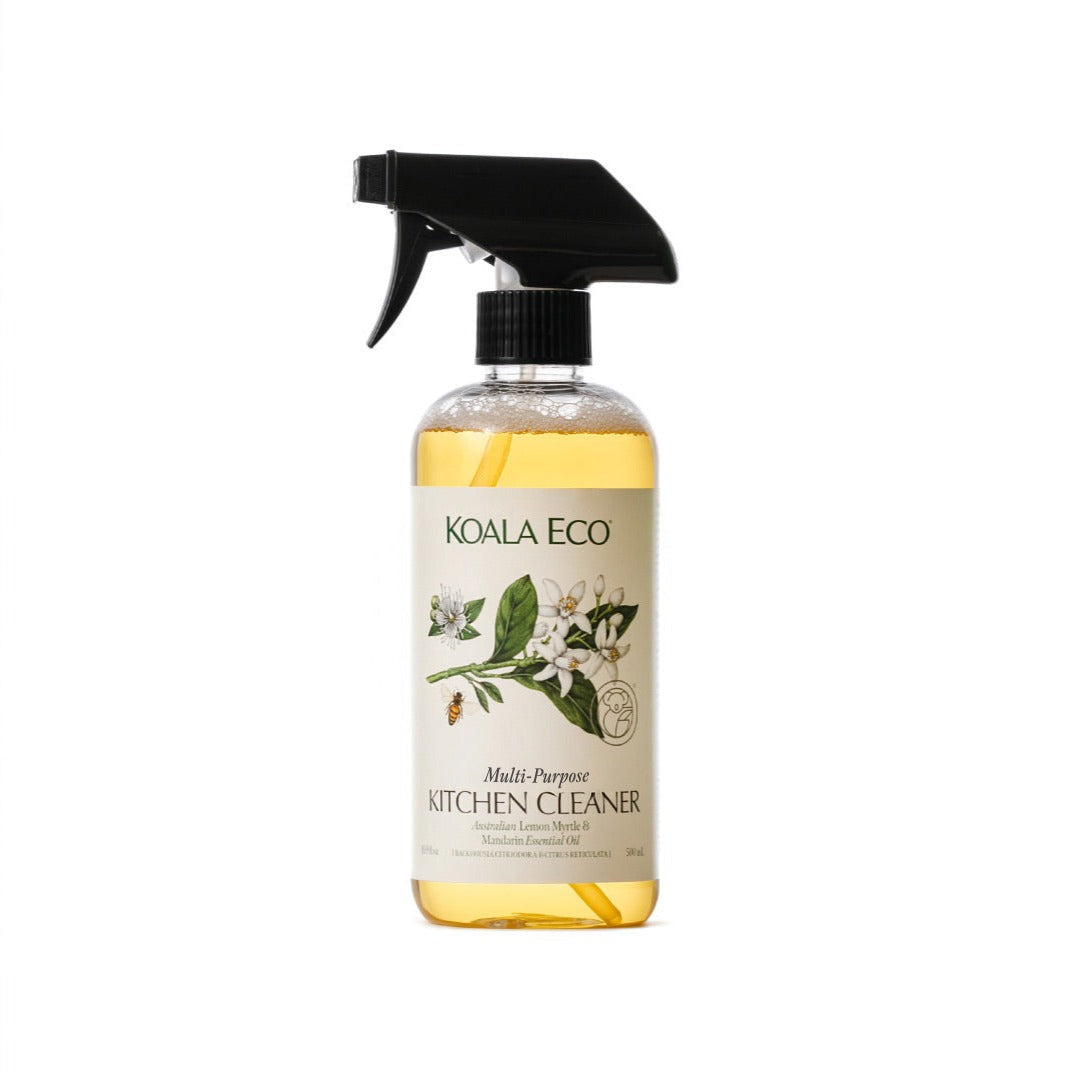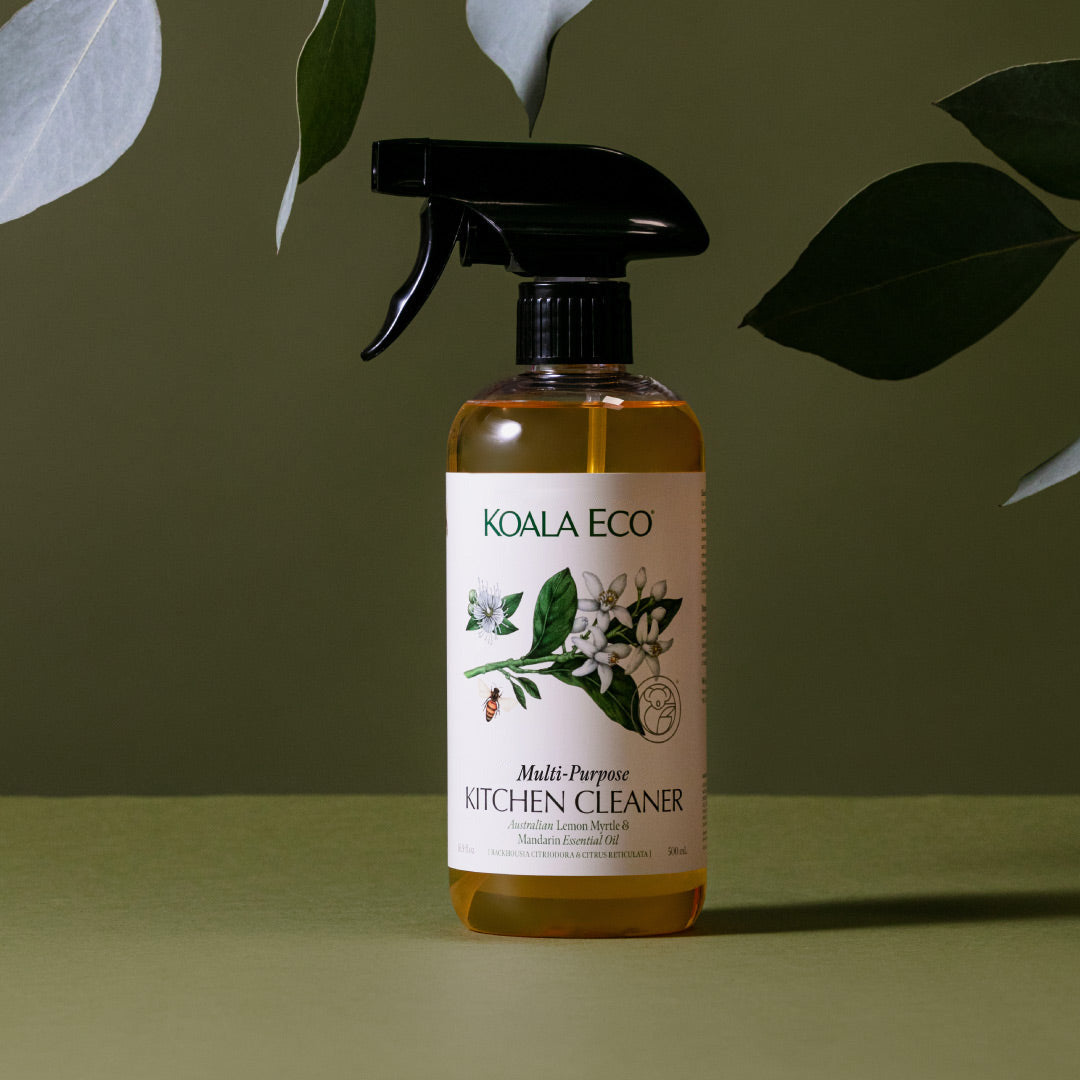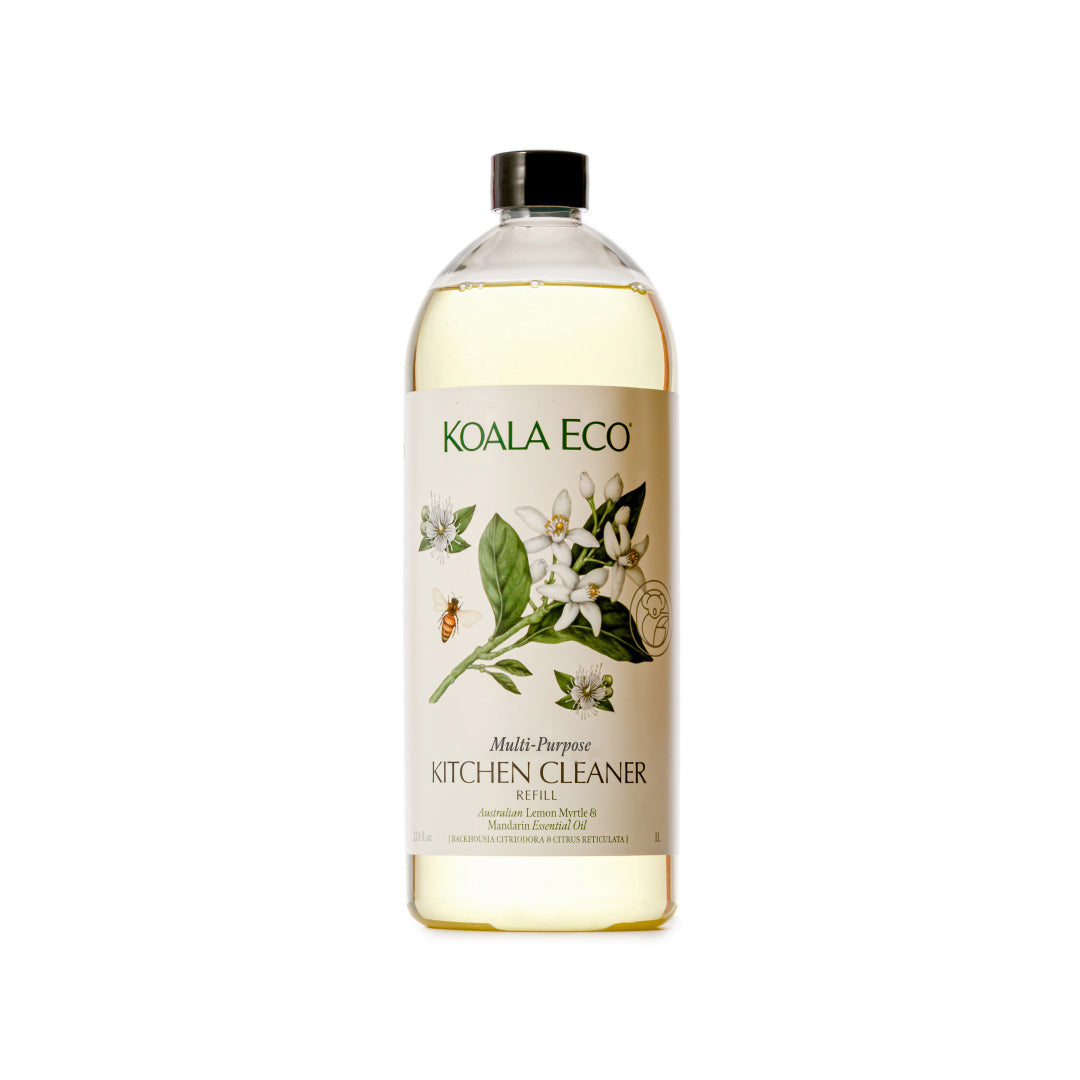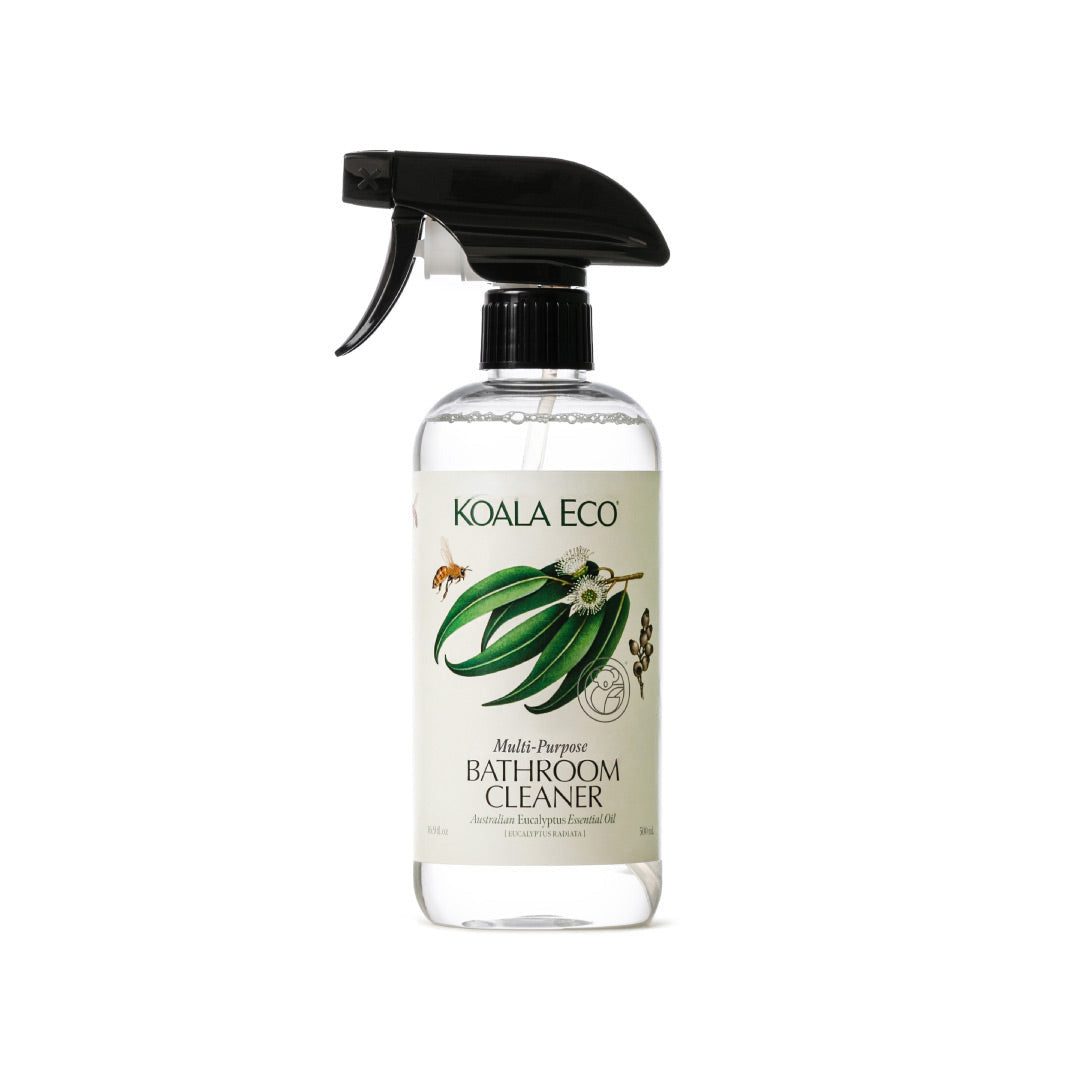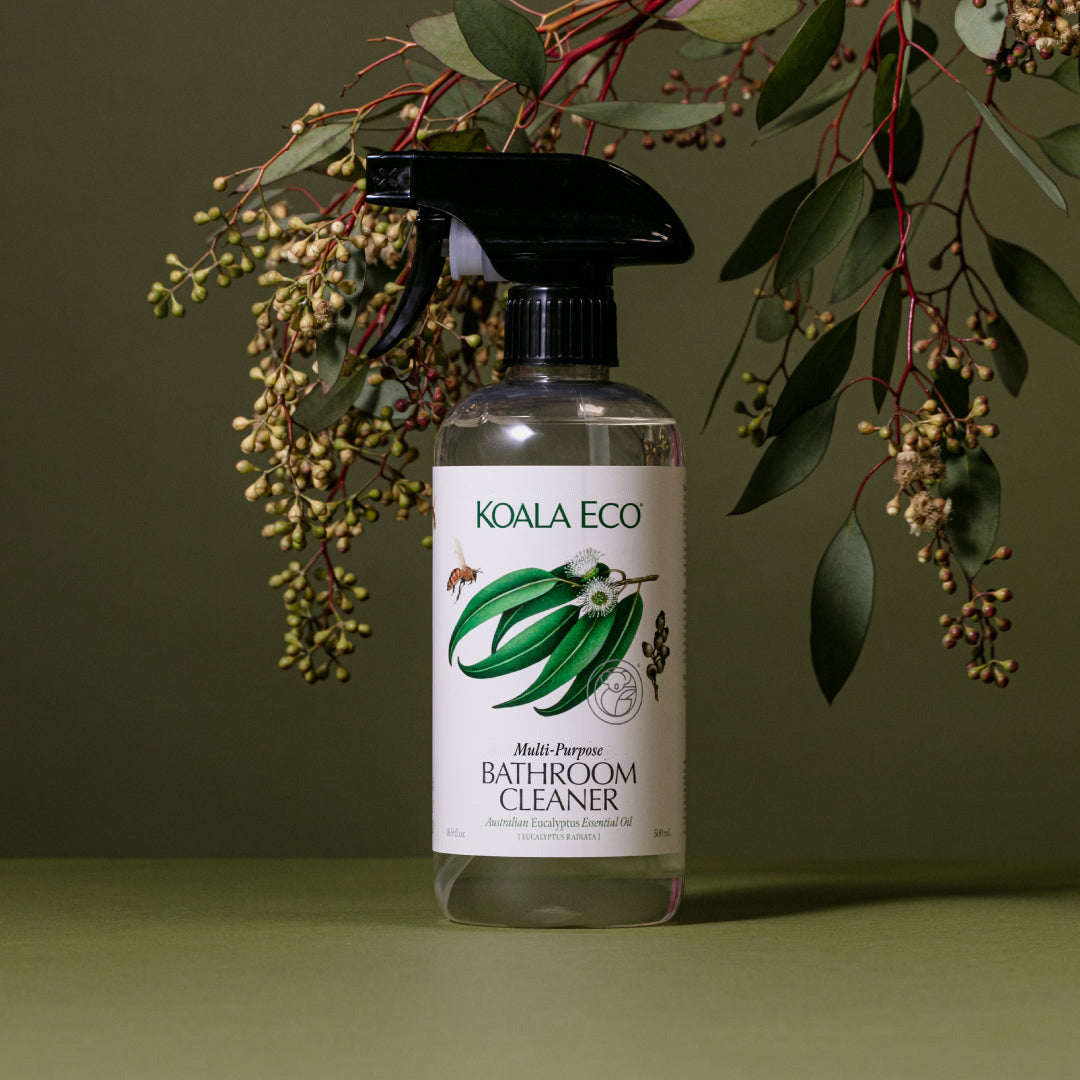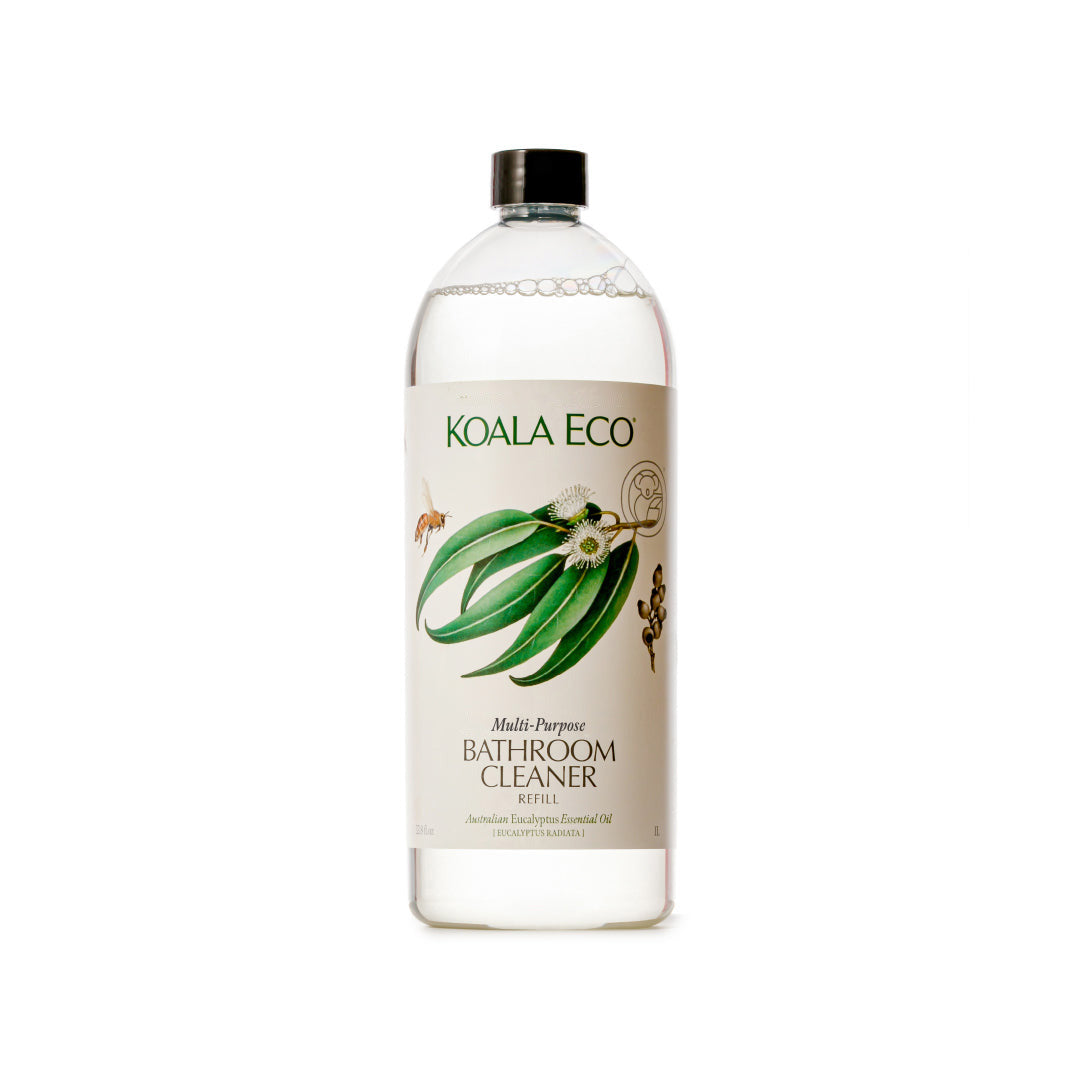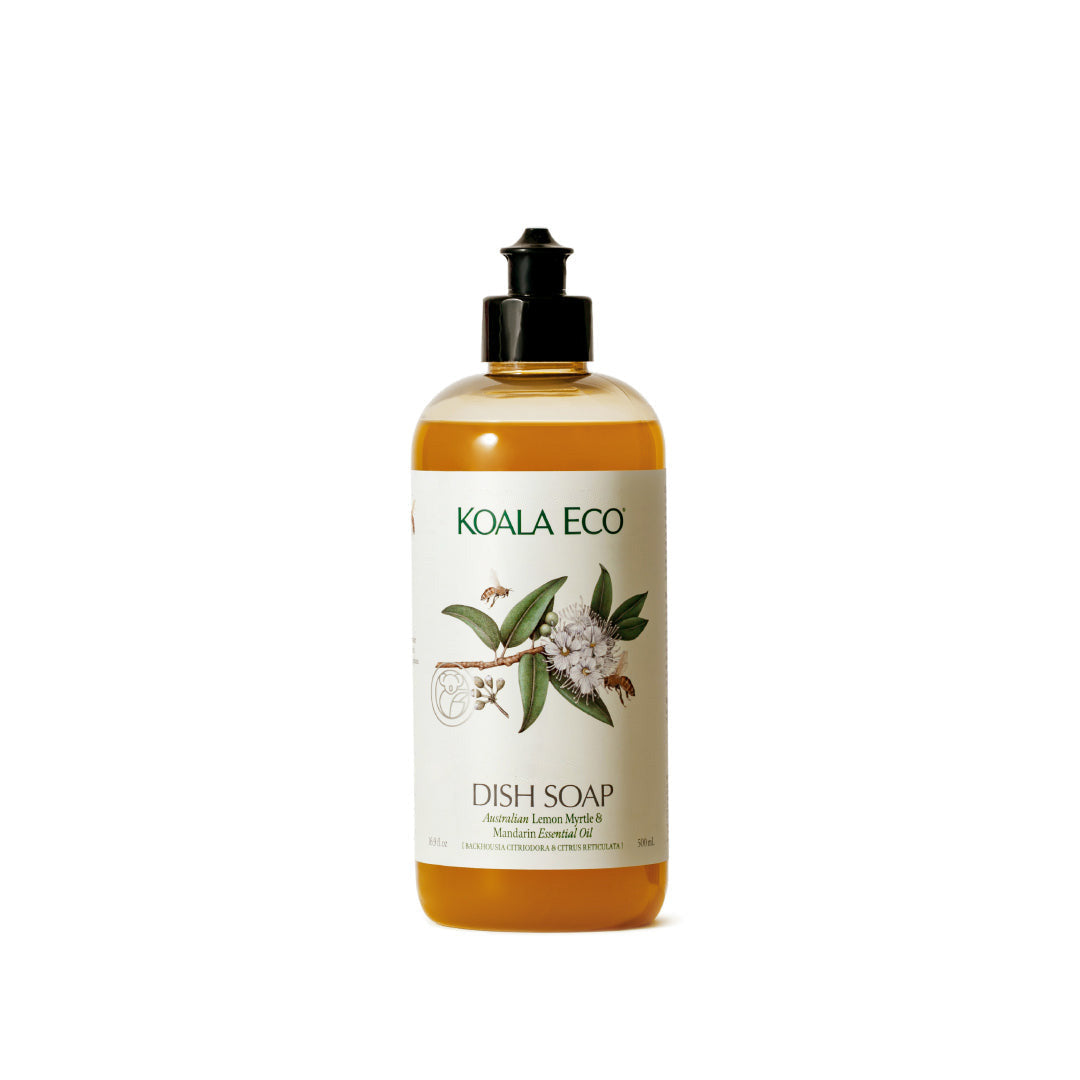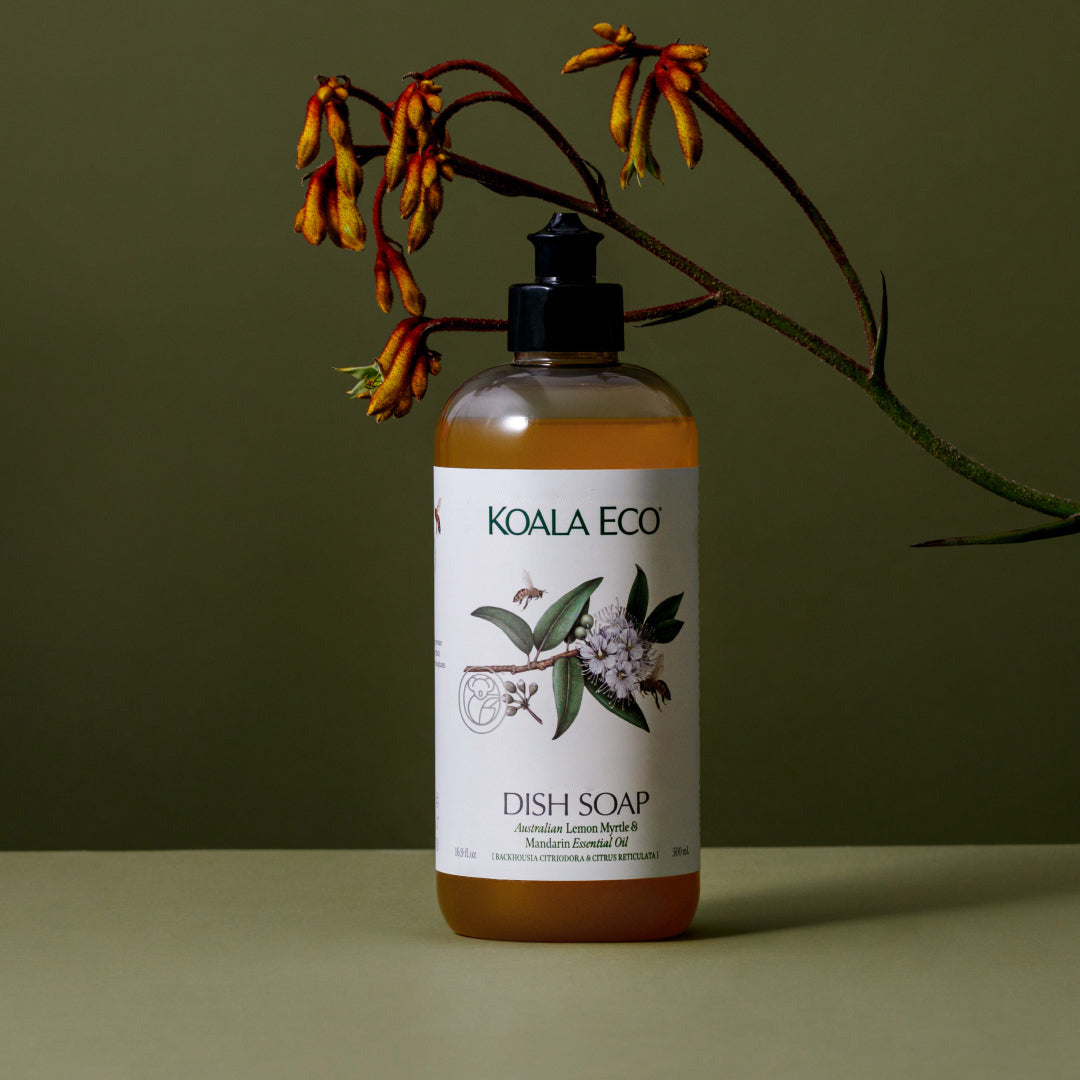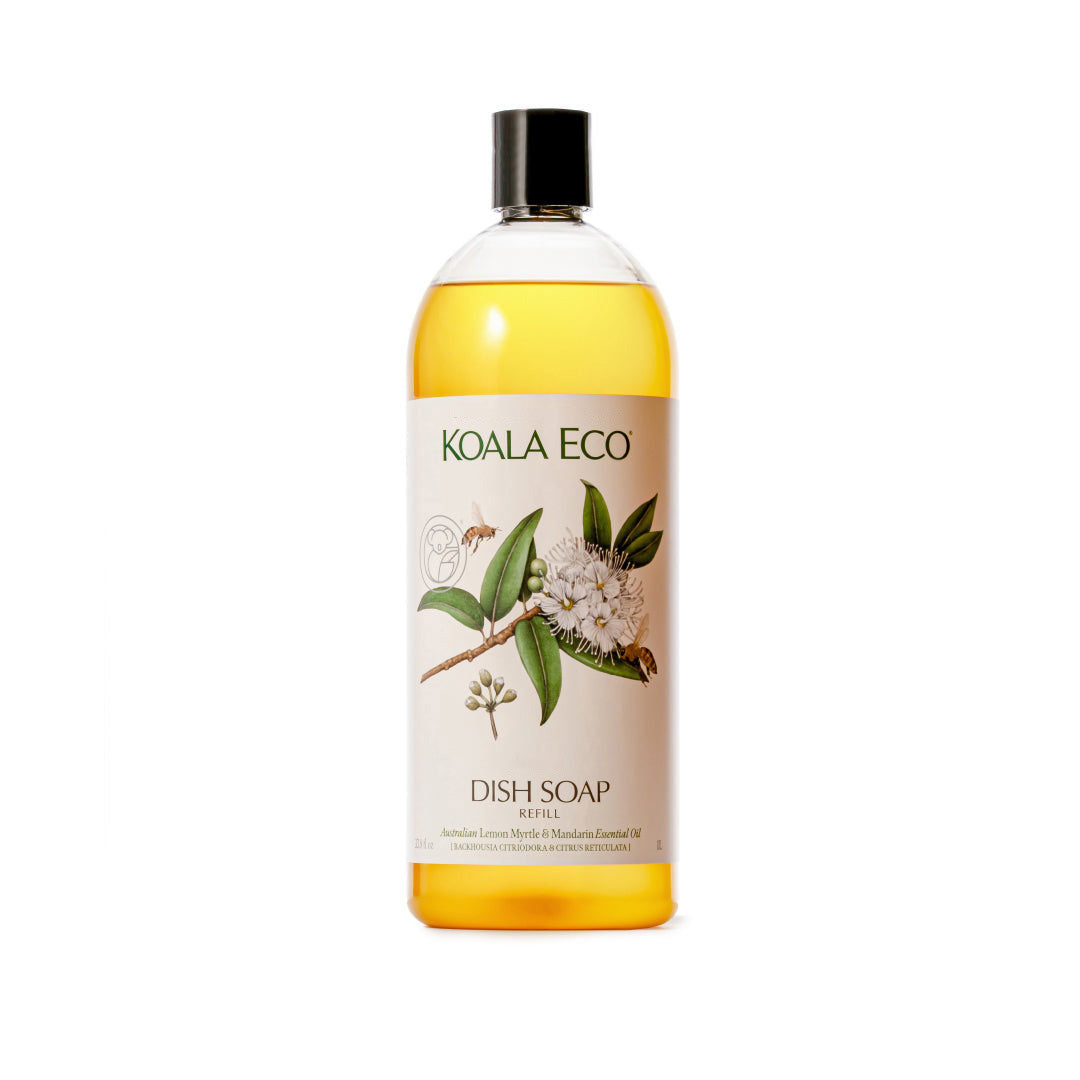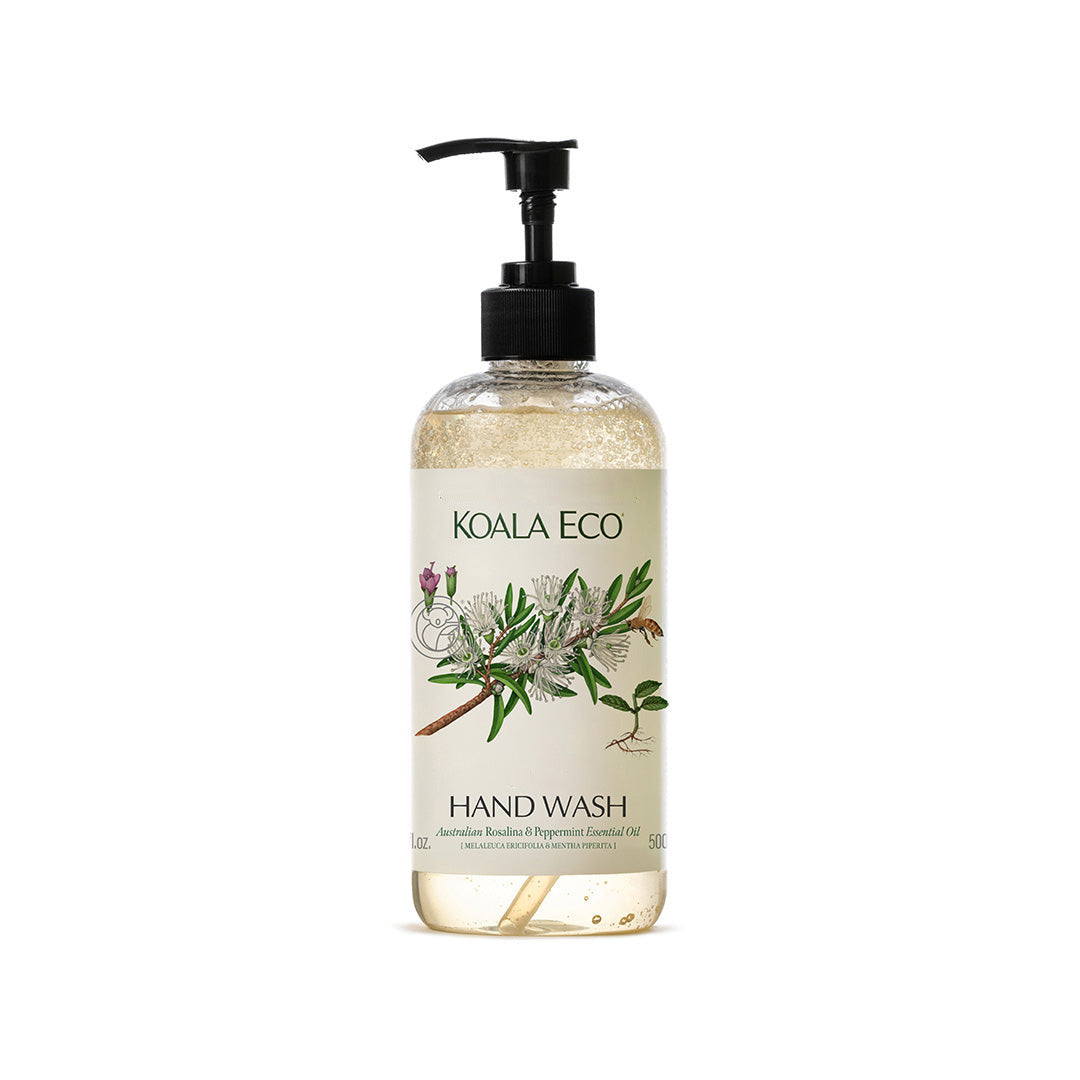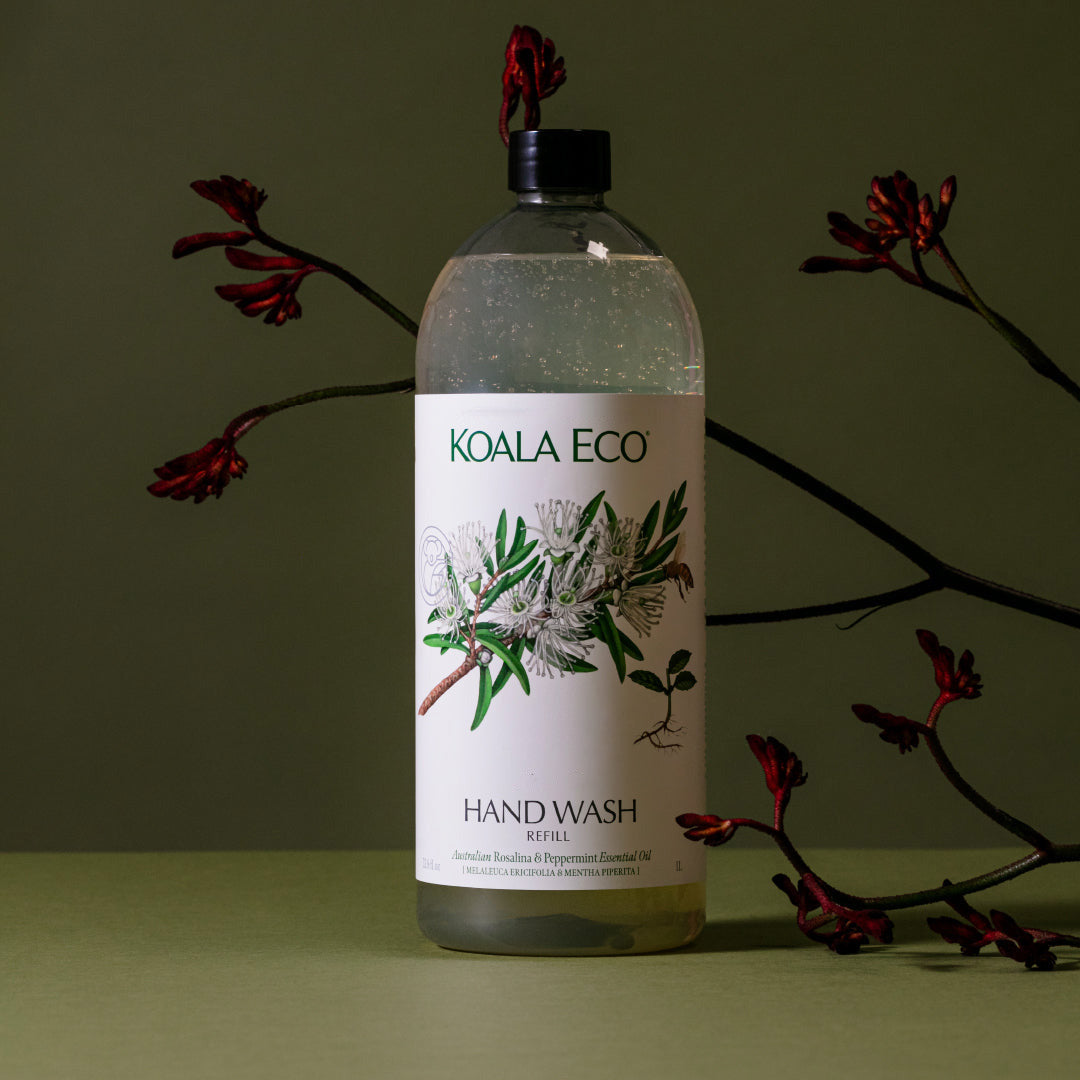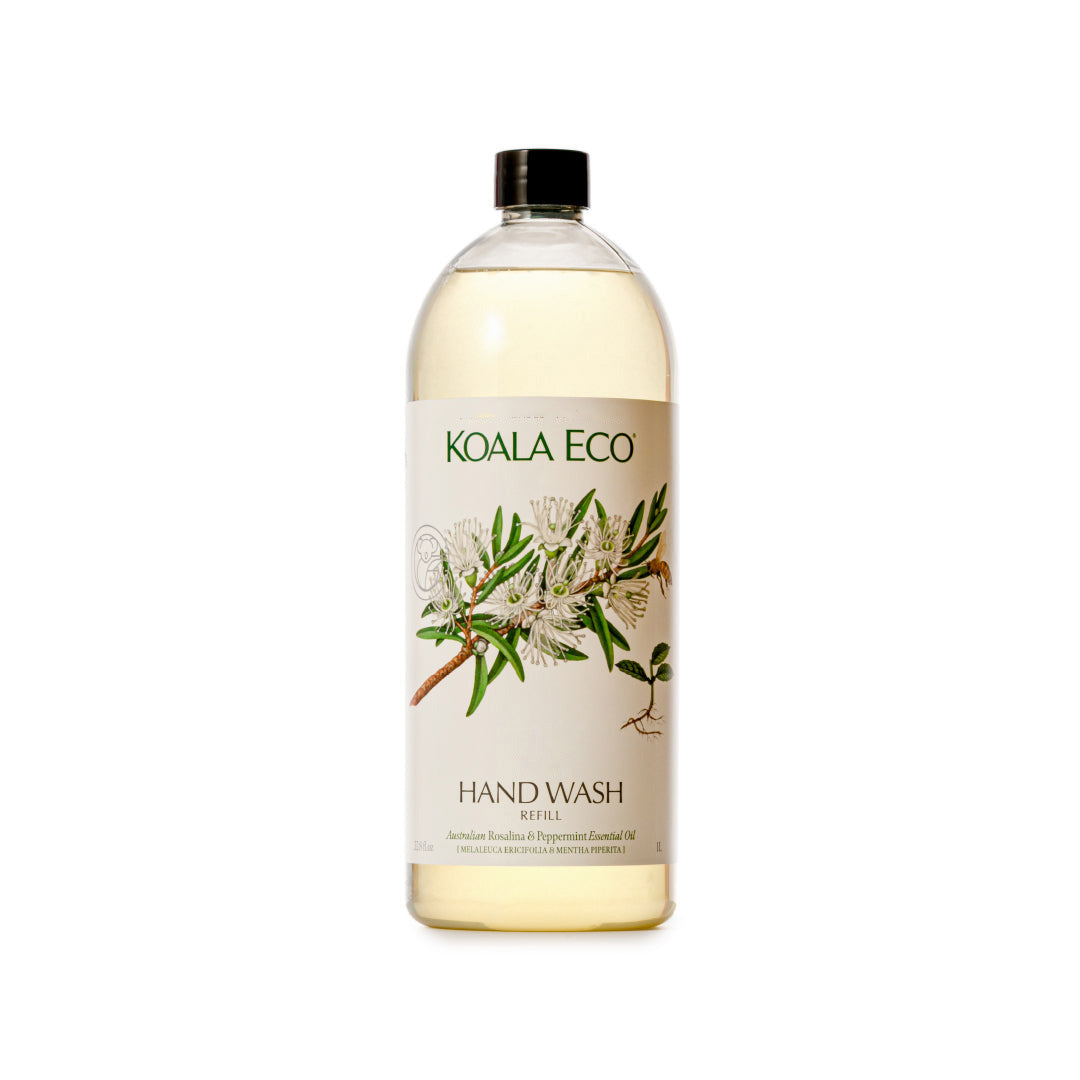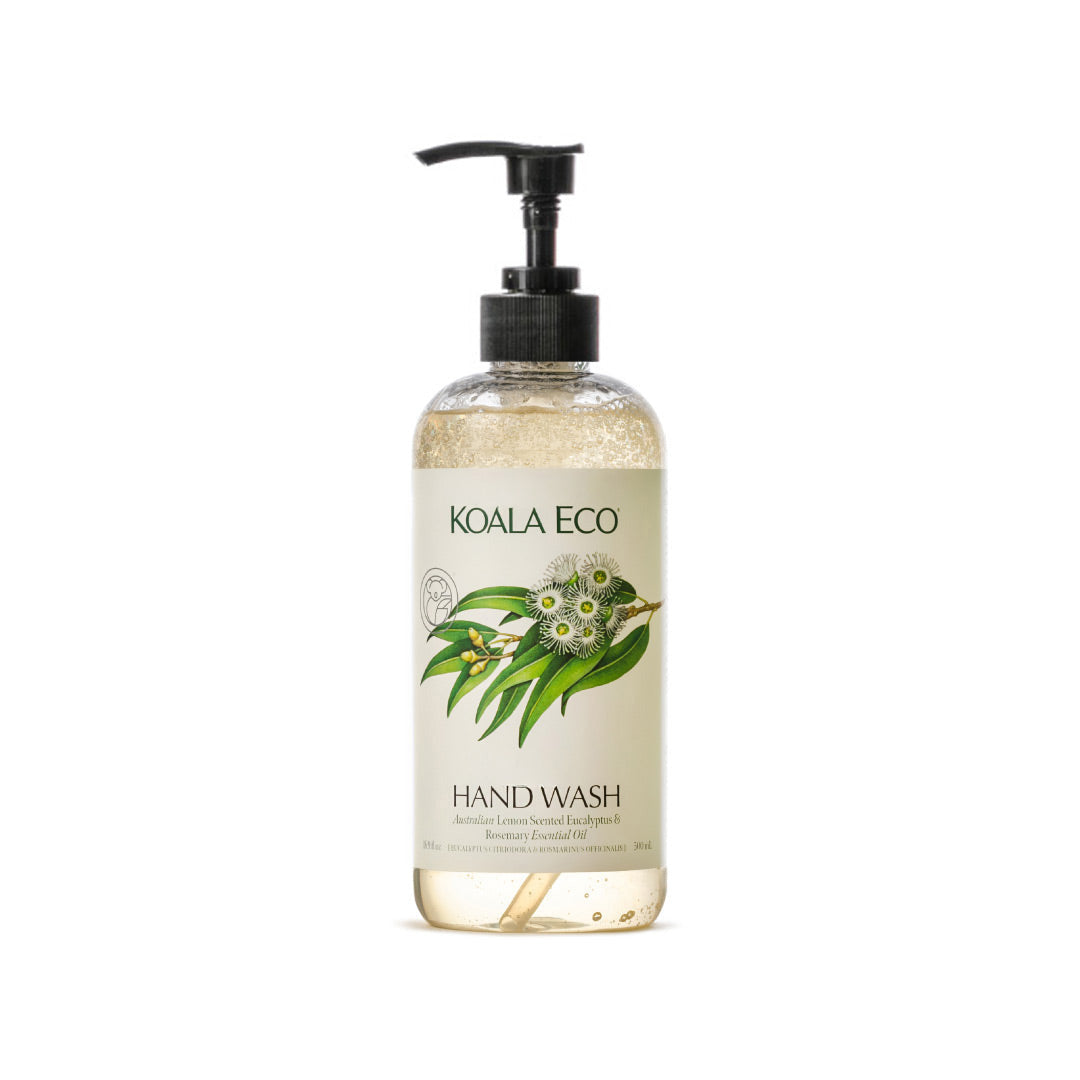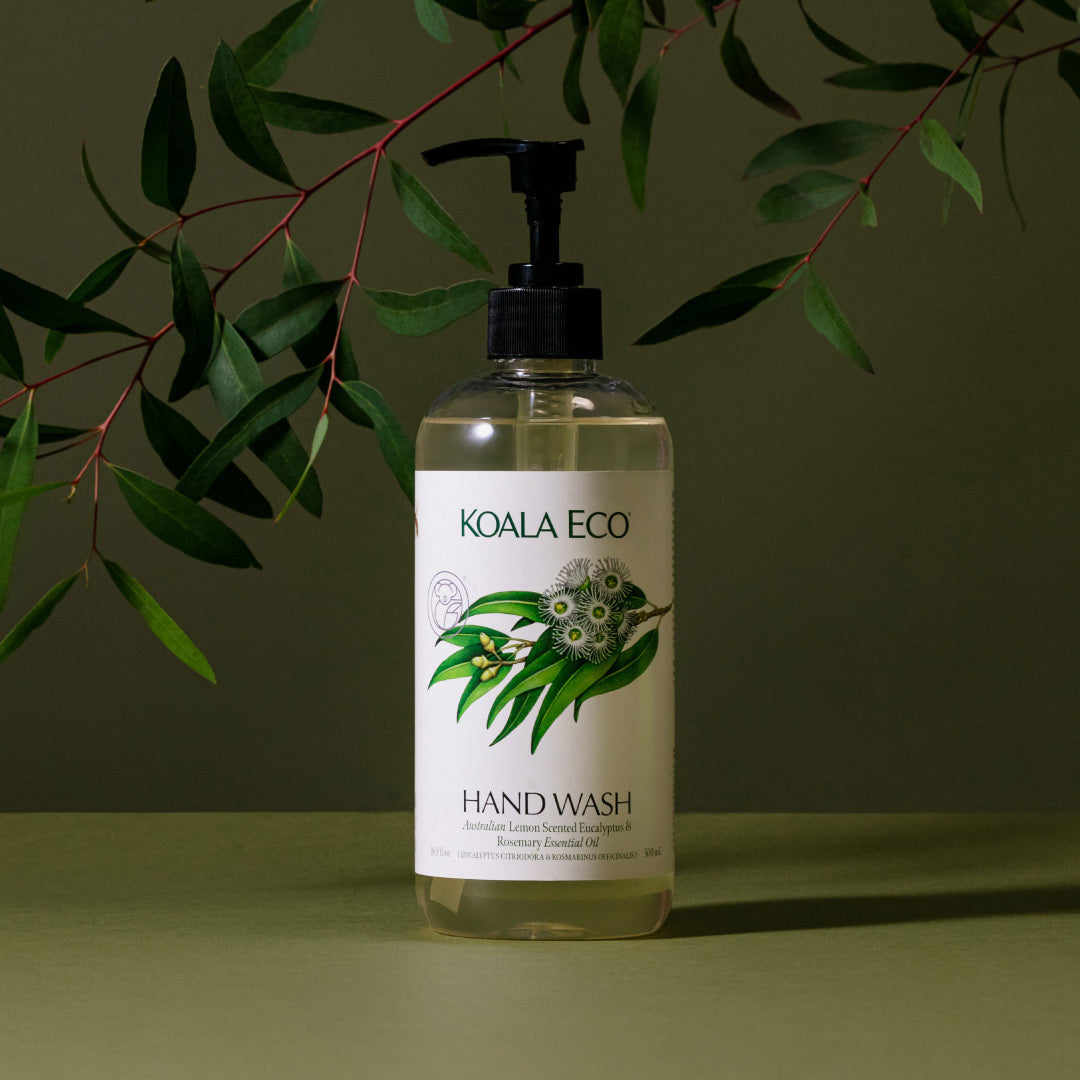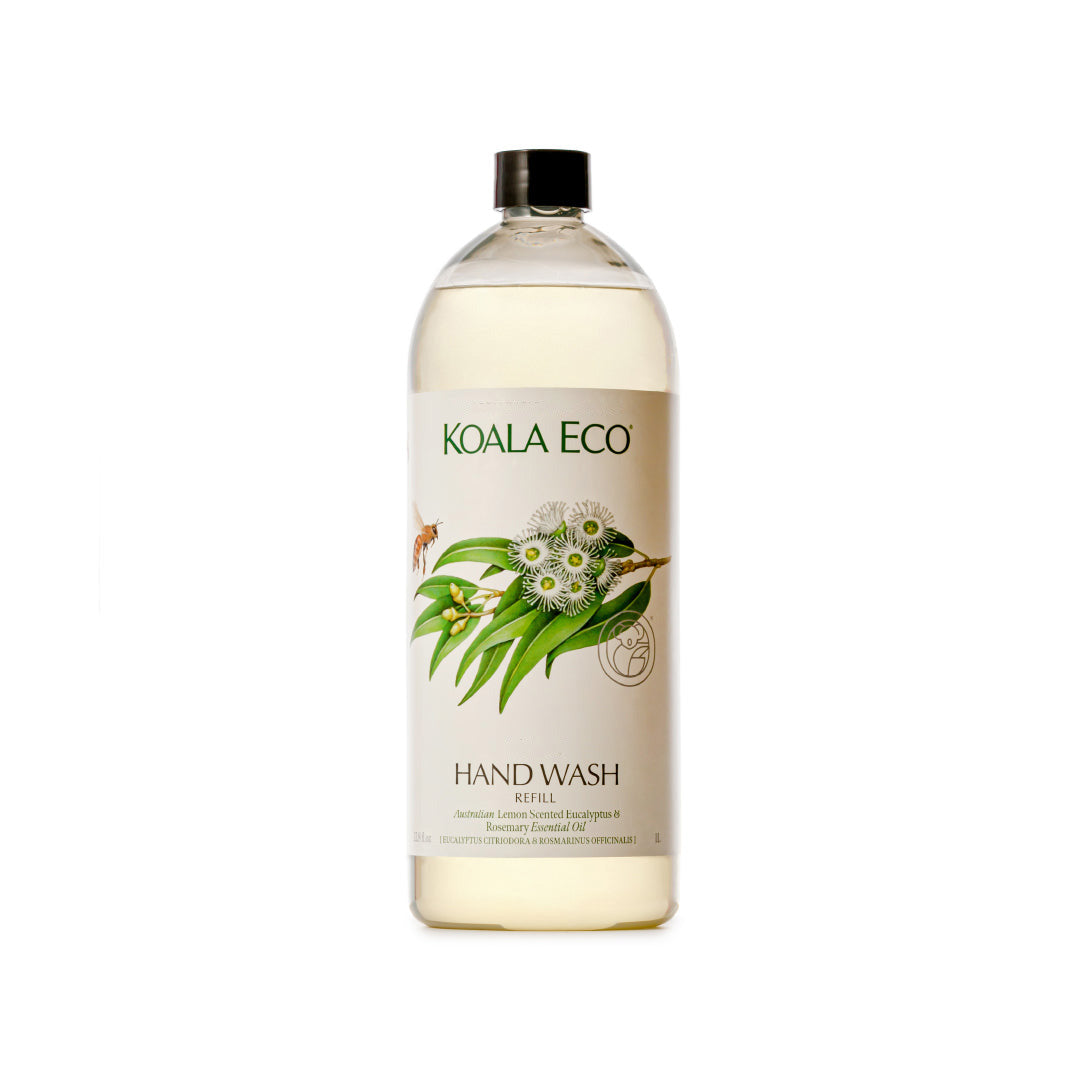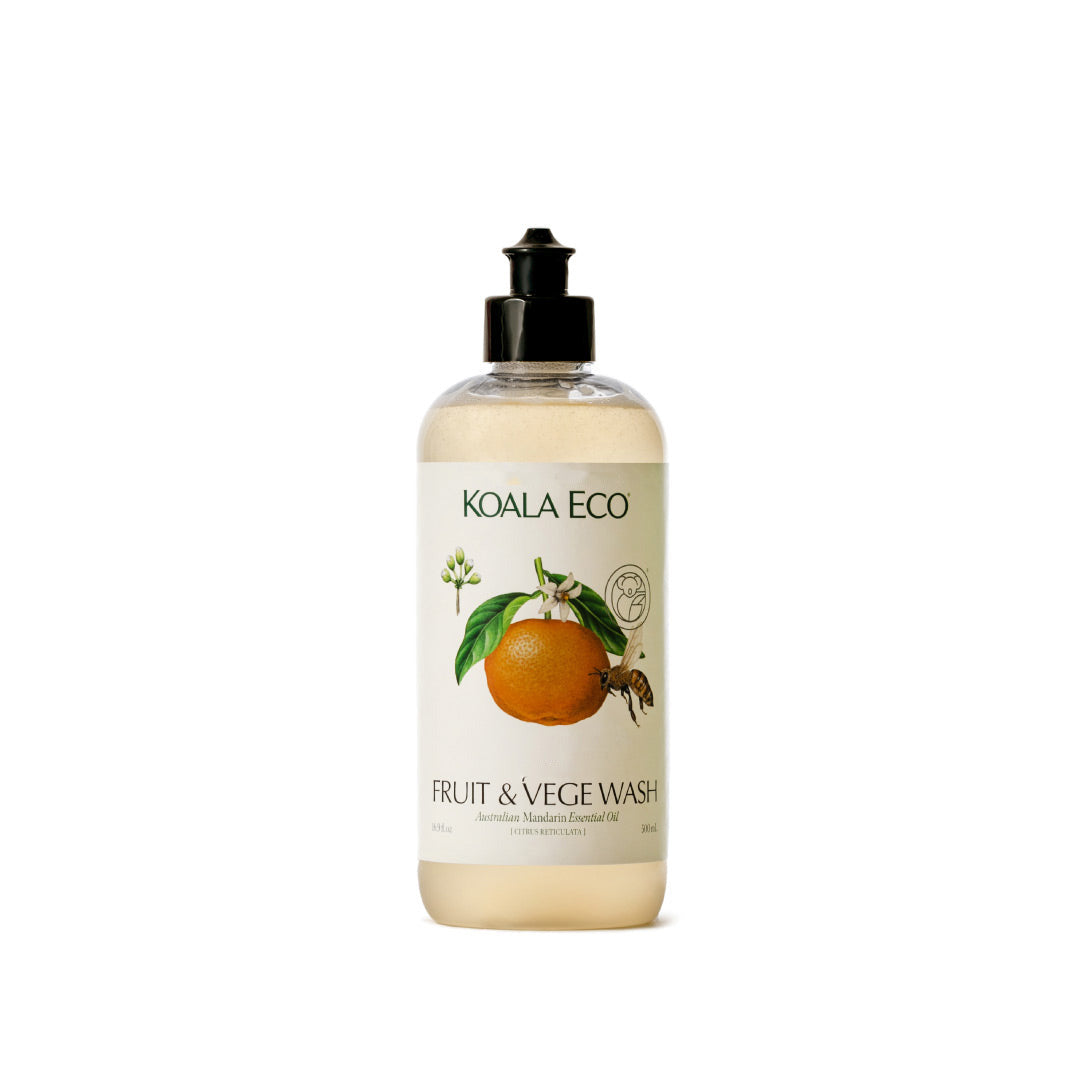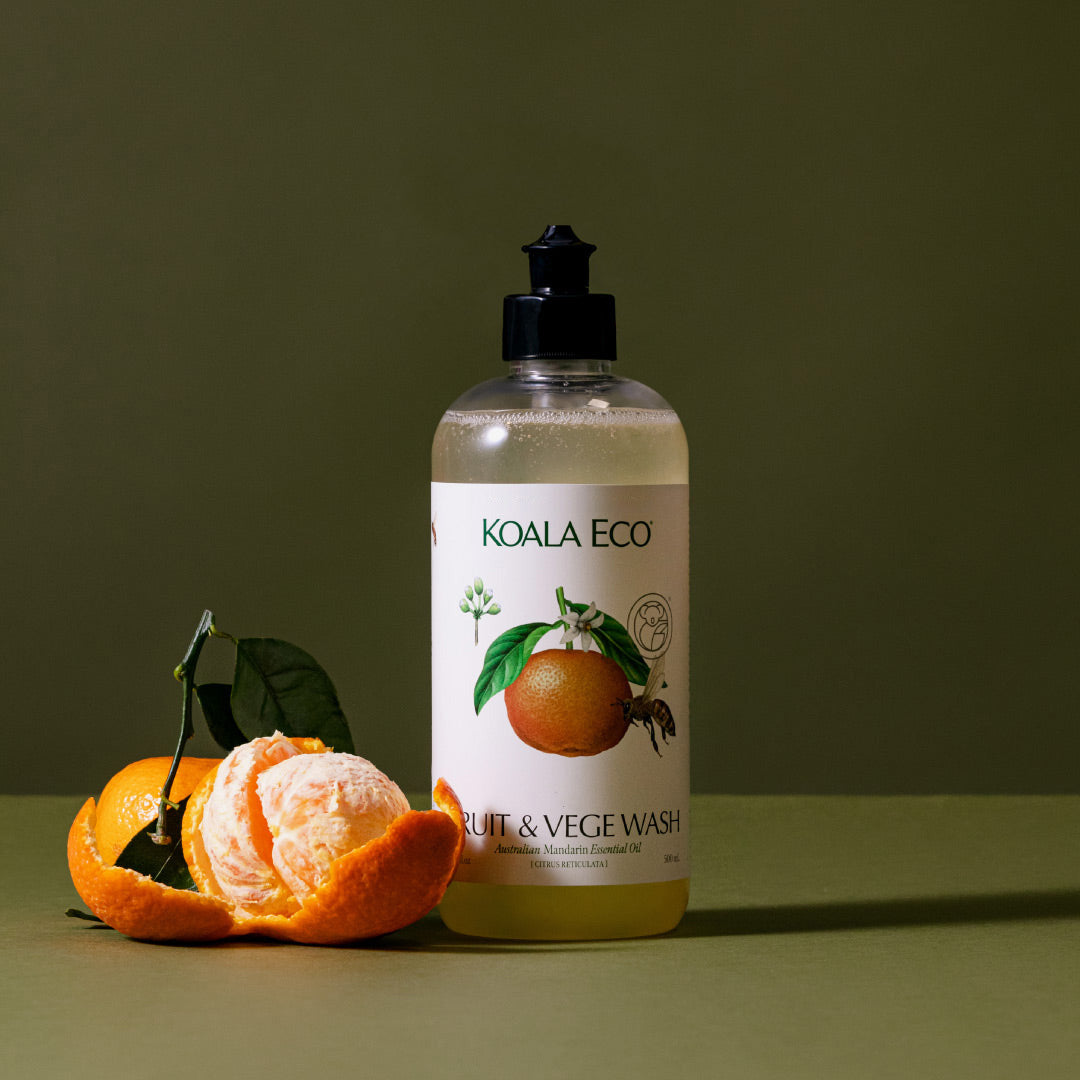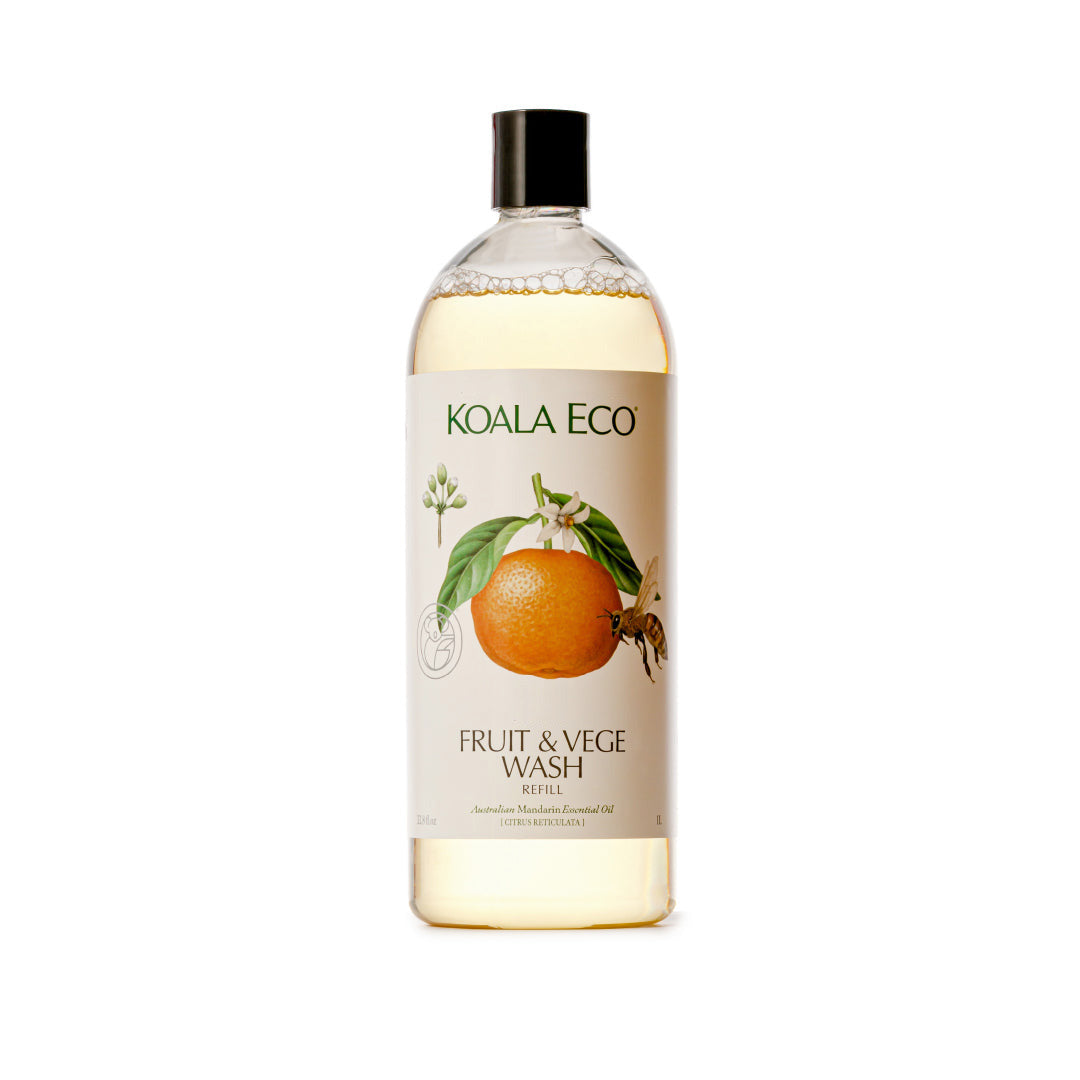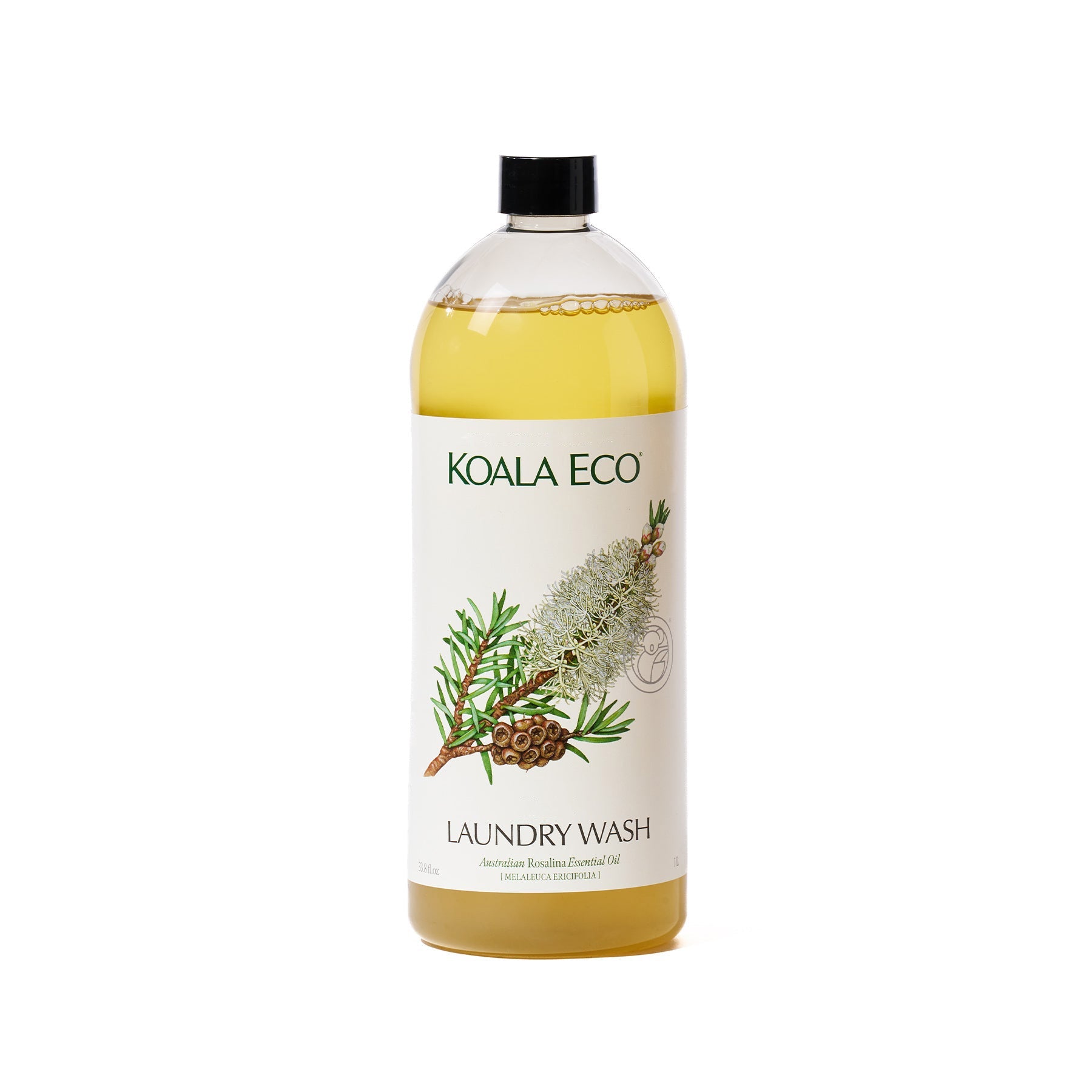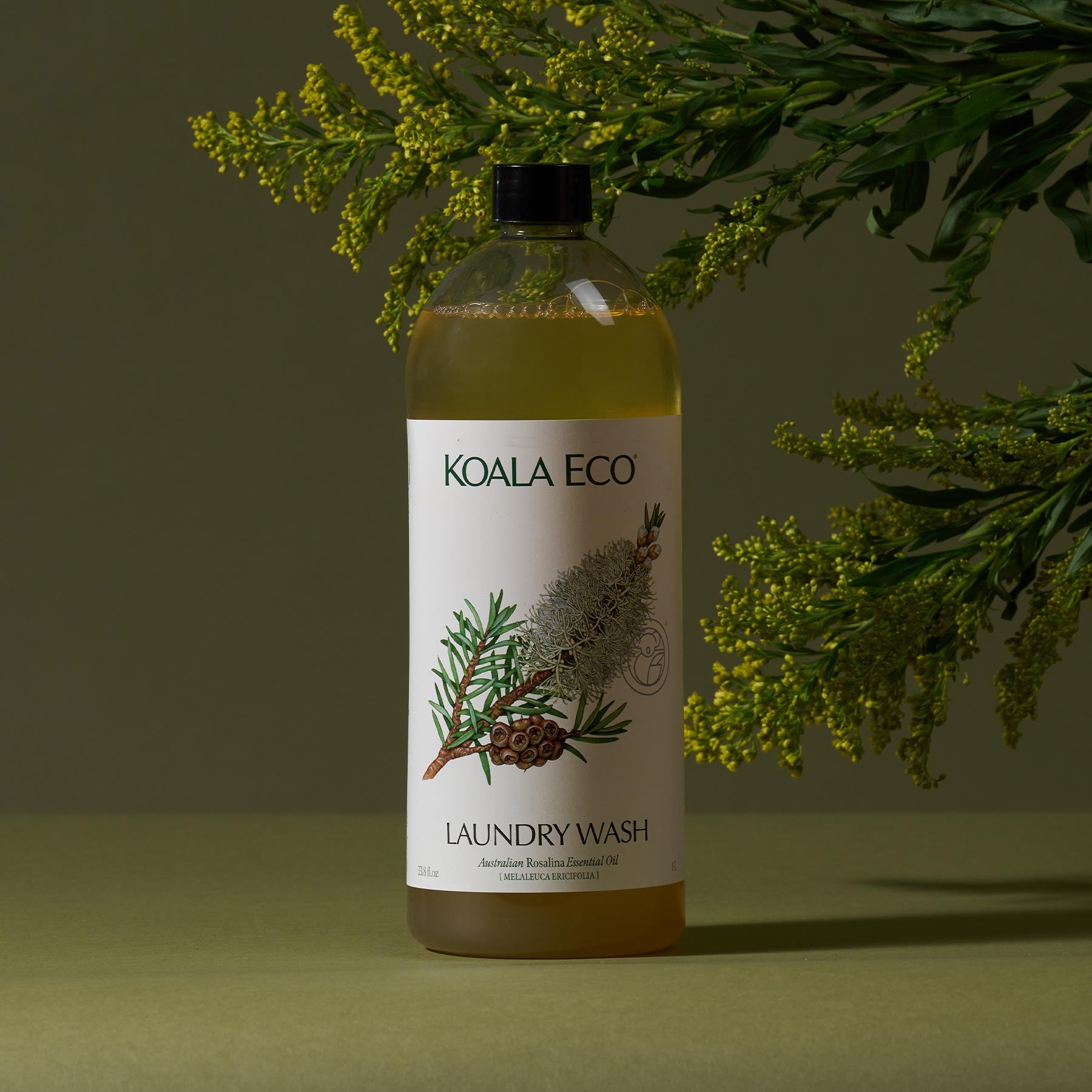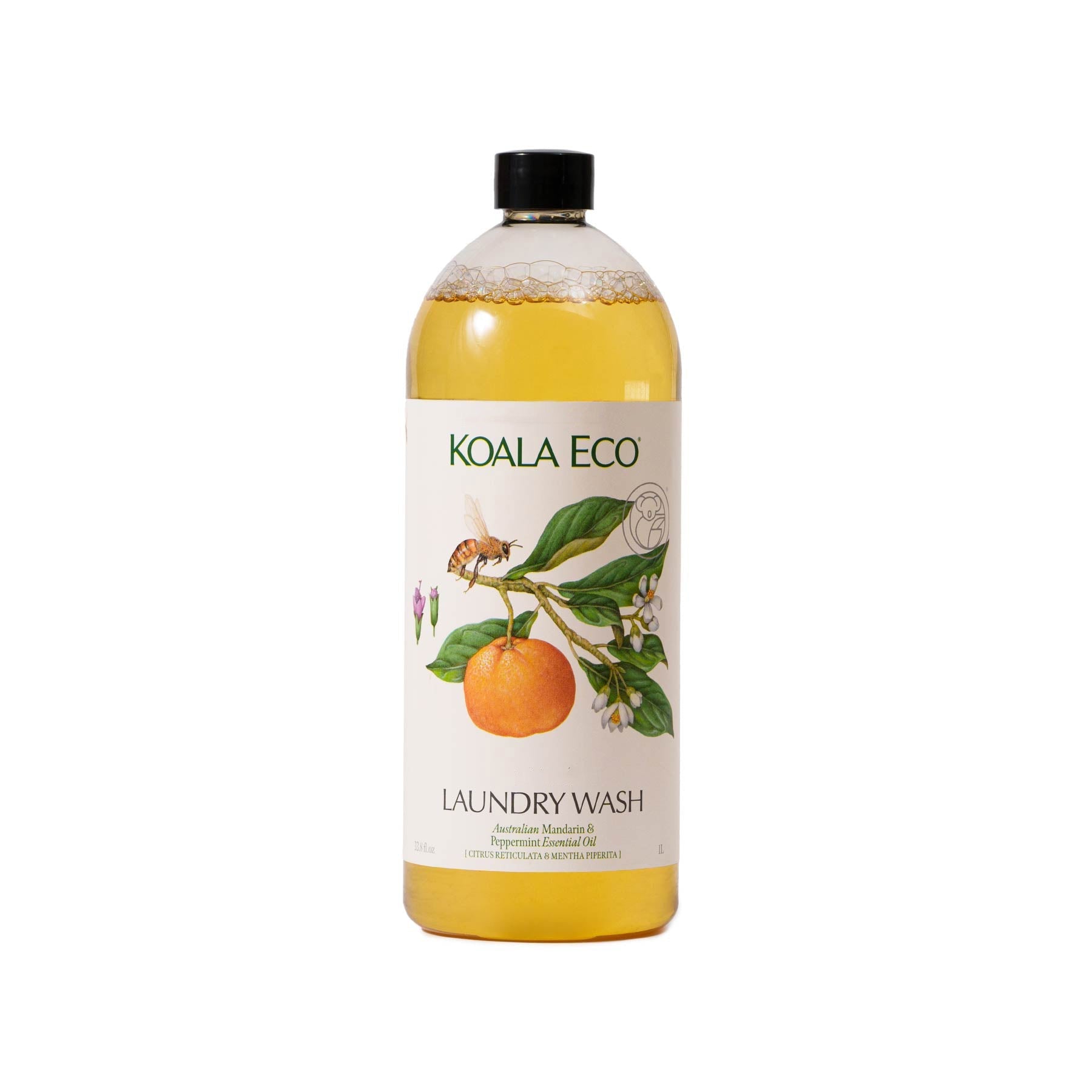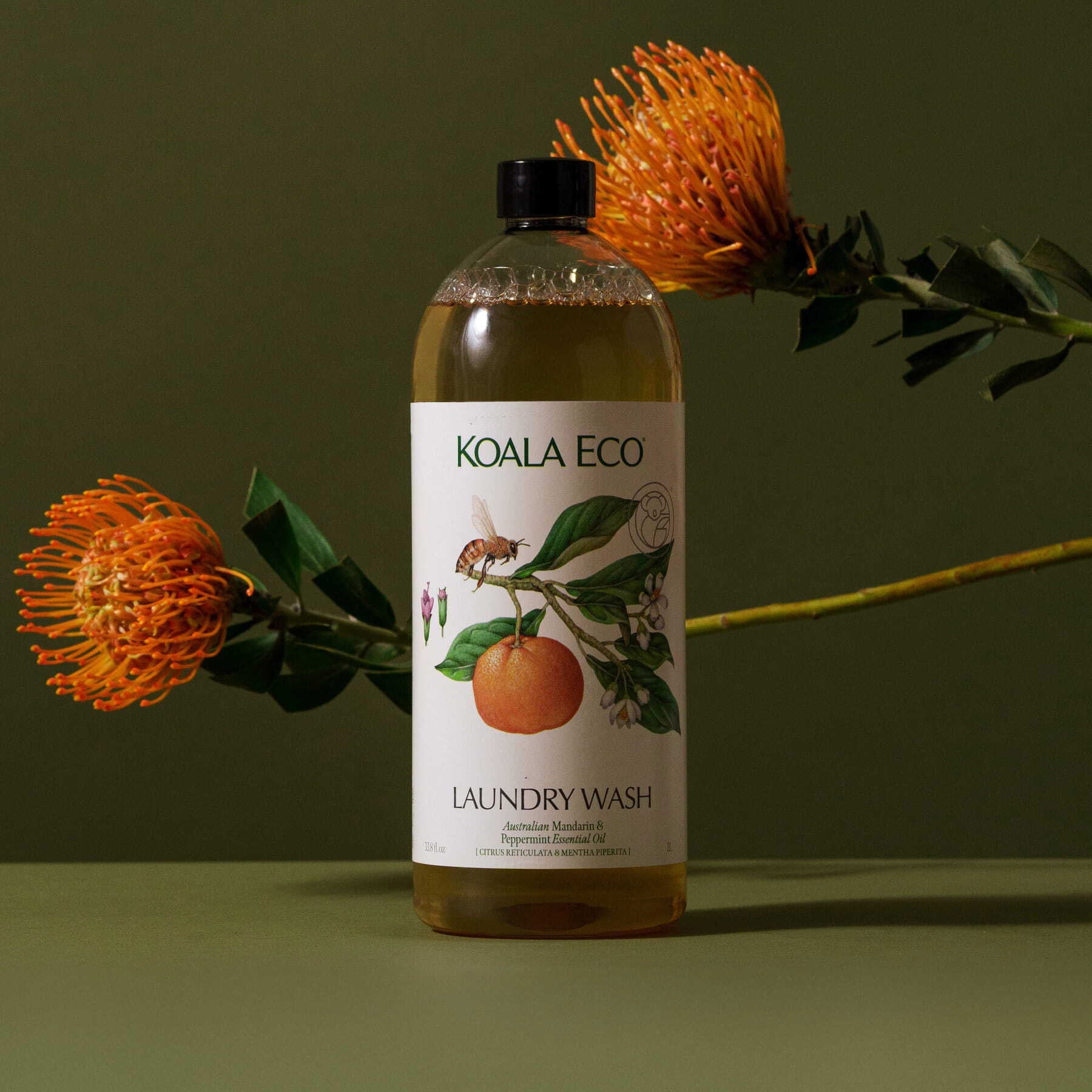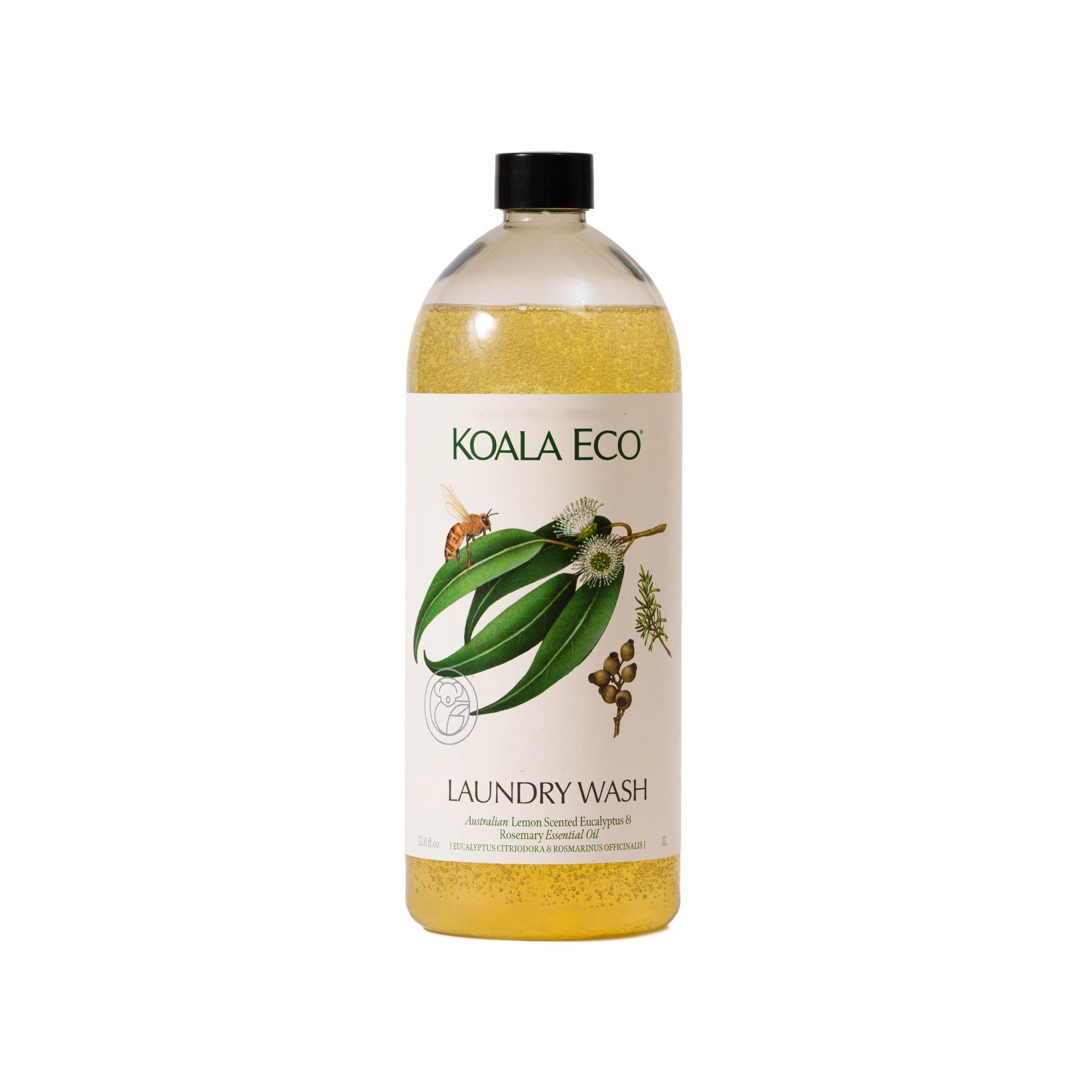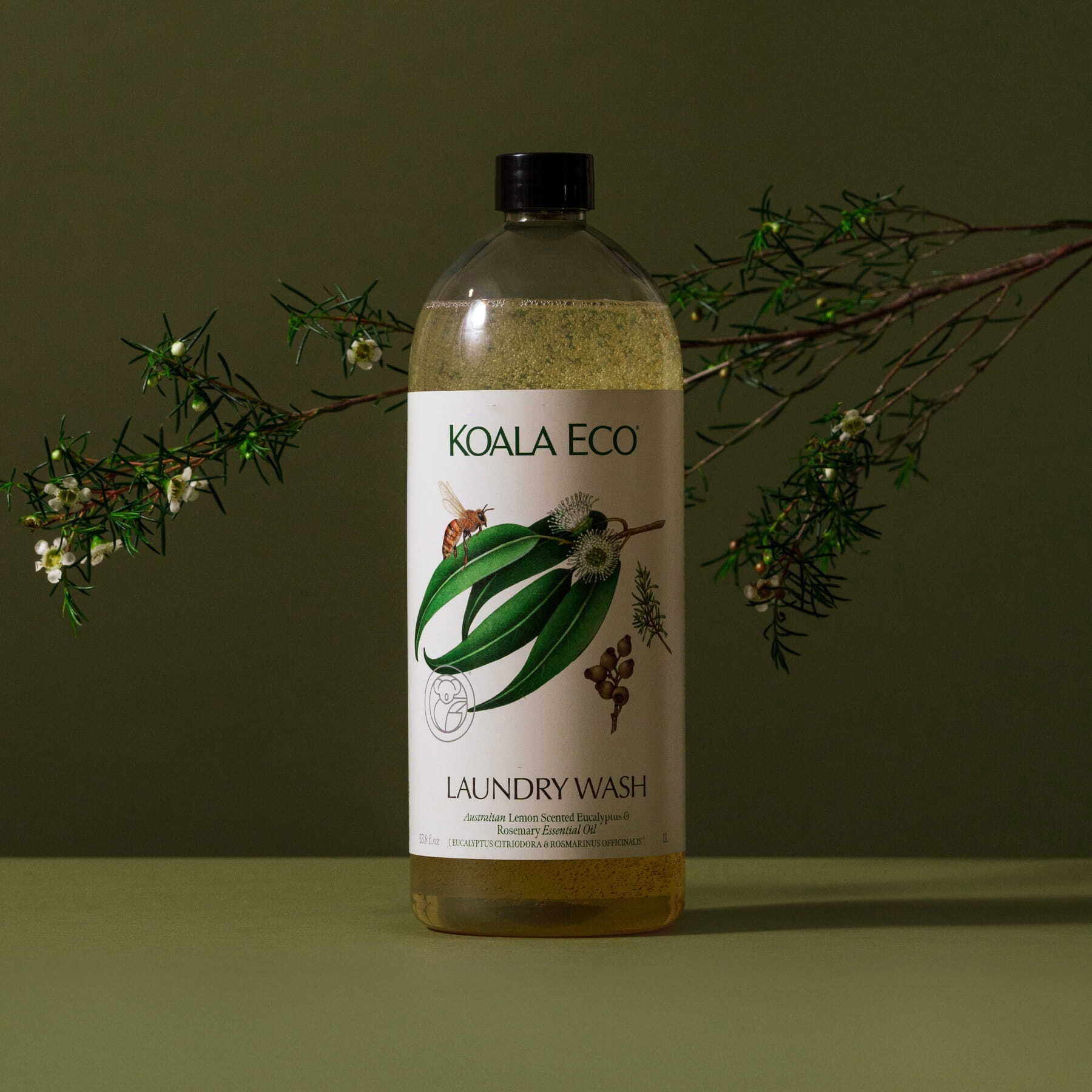When we came across Koala Eco on Instagram we instantly fell in love with the brand. Affordable cleaning products, that are safe for the family and kind to the environment. Beautifully packaged and made from native Australian ingredients, that smell divine and actually work too! We reached out to this incredible mumma, as we just needed to know more about her story. It's been amazing getting to know Jess, and we can't wait to share her story with you too.
Read the Q&A with Jess - a mumma we adore xx
What was the catalyst for creating Koala Eco?
I guess you could call Koala Eco a pragmatic solution to a personal frustration. My husband Paul and I were constantly on the hunt for safe, affordable, chemical-free cleaning products that not only could make our home smell (naturally) fabulous but would also actually work. We felt our two young sons (and our family dog) shouldn’t have to hold their breath in order to avoid absorbing chemicals every time we cleaned the family home.
But we couldn’t find what we wanted, so ultimately we thought: why don’t we make our own? We're both from entrepreneurial backgrounds, and so being Koala Eco’s first — and therefore possibly most demanding — customers, we had some pretty specific and sophisticated aims in mind. Primarily we wanted something that not only worked flawlessly, but also could be misted safely around our children. We wanted to use ingredients derived from nature and sourced locally. Then, aside from the formulas being 100 percent safe and effective, we also wanted our products to look stylish in case we needed them handy around the house for accidental spills, or if we were just too busy to put them away.
So the result is Koala Eco, launched in Sydney earlier in 2017. Because it’s an Australian company committed to the wellbeing of the planet, we named it after the koala, a marsupial that’s instantly identifiable with Australia, but which is also suffering population decline owing to reduced habitat.
Tell us about how you select, and source the ingredients for your products.
Australia is blessed with the most extraordinary range of plant-based resources, from antiseptics to medicines: natural remedies that have been part of the Aboriginal pharmacopeia for tens of thousands of years. Working carefully with a local chemist and lab, we’ve researched these to select those most appropriate for use in the home. We use only 100 percent pure Australian essential oils, because these, when combined with vinegar, sugar-based biodegradable alcohol and bicarbonate soda are just such great alternatives to caustic cleaning products. Essential oils in particular are fragrant and effective antibacterial alternatives to thousands of mainstream products, and are equally (or more) effective than toxic chemicals, especially when combined with other natural biodegradable grime-fighting ingredients. Koala Eco products are absolutely free of any synthetic chemicals or toxins. We research, source, and test every ingredient that goes into our products. It’s that simple. If you take a look at the ingredients lists on our products, what you read is literally what you get: and they don’t include any chemical formula or item that is hard to pronounce.
For every Koala Eco product sold, you donate part of the proceeds to One Percent for the Planet: why did you specifically choose to affiliate with this organisation?
For the sake of a healthy future for everyone’s children everywhere, we believe in supporting environmental conservation. We take the .eco part of our name very seriously, because for us it just isn’t enough to make products that are environmentally friendly; we also want to do something constructive to support the efforts of charities and organizations that are actively fighting for the wellbeing of the planet. We chose One Percent for the Planet to assist in the ongoing protection of land, forests, rivers, oceans, and also to encourage sustainable methods of energy production. Every time someone buys a Koala Eco product, the company donates a percentage of that sale to One Percent for the Planet. So whoever buys our cleaners ends up giving back to the planet in more than one way: by using products that won’t damage the environment, and by triggering a cash donation to One Percent for the Planet.
Sustainability with style is part of your product ethos; how much does this philosophy influence how you conduct your every day life?
Call it conscious consumerism! I seek out products that do no harm. ‘Do no harm’ is a medical mantra, but it makes sense for ethical shopping too. I don’t want to buy things that will damage us or the environment. It seems like common sense, but I am amazed at the toxic stuff out there that people still buy. So I buy local and choose seasonal produce whenever possible. I would encourage everyone to buy (and buy into) things that are recycled, or recyclable and refillable – and avoid plastic at every opportunity. I keep cloth bags in my car for grocery shopping, so I always have them and never have to rely on store bags. I avoid plastic water bottles and take my own reusable glass or metal water bottle everywhere. I use stainless steel containers for lunches and leftovers, and our children know never to use drinking straws.
What are some easy practices that parents can implement at home to increase their child’s awareness of sustainability, encouraging them to become a caretaker of our environment?
Children watch and listen intently – they observe what their parents or peers or carers do. So a lot of easy wins (environmentally speaking at least) can happen in the home simply through adults and older children modeling the sort of mindful behaviour that results in more consideration for the planet. That’s one of the first things. Other tactics can include getting children to manage the household recycling; even youngsters will respond to the responsibility of gathering up all the family’s recyclable materials ready for collection. Instilling the know-how to avoid plastic bags or water bottles, making a mess of the kitchen together by cooking with leftovers … then cleaning up the mess together with responsibly sourced products. Using each shopping expedition as a learning opportunity, getting kids to help choose products that are eco-friendly. Trying to make it fun. Of course, there will be days when none of this is possible, parents will be exhausted, and children won’t be in a co-operative mode; but however hard it is, try not to compromise on standards. At least, keep modeling good habits; it is ultimately so important.
Children have an insatiable curiosity, and naturally question why you have a certain point of view: have your boys questioned anything about your global view that’s made you stop and really think?
I’m originally from the States; Paul is Australian. Since becoming parents, we’ve lived in cities on both sides of Australia, and our boys have been raised in a multicultural setting. They are still really small, however I’d like to believe that their perspective is developing in a broader way. They are growing up as part of a family spanning two different countries and this is teaching them to expand their horizons. I guess they are still of an age where whatever Paul and I do is accepted as the norm, and so the questions may come later. Or the questions may not come at all – perhaps we will manage to instill mindfulness about the planet in a totally natural and organic way, so that our boys embrace that lifestyle and mindset as totally normal.
You are a mother of two, a wife, and a successful entrepreneur, how do you balance these commitments, and rise-above those moments when things feel like they’ve become too-much?
Motherhood is such a transformation. Being a parent is truly the most life-changing event anyone can experience and there is no way to describe or understand it until you are in it. I always thought having a career and children would be easy until it was me! I wish I could go back in time and be more sympathetic to the women I once worked with, who I now realise were actually doing a magnificent job trying to juggle kids and corporate life. Scandinavian countries just seem to get this balance so much better than Australia and the US. However, having a good support system and be surrounded by great women always helps. Juggling work, motherhood and life itself is a demanding task, so I always try my best to compartmentalise and focus on one thing at a time… easier said than done. I love work, and I love family life. Ultimately, I’m doing what I love.
Koala Eco launched in 2017; knowing what you know now, what advice would you give to other mums launching a new business?
Running a business and raising a family is challenging but worth it. I always encourage women to chase after their dreams. Having confidence in oneself is one of the hardest things, but it strengthens when you plunge in and get on with it. Life takes many twists and turns and everything teaches you along the way. I’ve enjoyed many different jobs and gained so much from each one. But I’ve also learned that with young children one has to be able to prioritise and accept help.
What does a typical Sunday look like for you?
Sometimes I go for an early run, yoga class or beach workout then a drive along the coast to explore the natural parks with the boys. Sydney has so many great options with children. We enjoy spending time at Double Bay Library followed by Sushi Train. We also like visiting Carriageworks arts centre as they always have such progressive and interesting exhibitions. Maybe a stop by another brilliant art space, the White Rabbit Gallery. Then finally dinner with Paul at 10 William Street in Paddington.
If we’re visiting Bondi, what are your top picks on where to eat, where to shop, and what to do?
My favourite store is Bondi Health Emporium, our favourite pizza place is Da Orazio and our favourite thing to do is just spend time at the beach. The coastal walk is a great place to take visitors. Sydney’s coastline is just so breathtakingly beautiful.







